

We may earn revenue from the products available on this page and participate in affiliate programs. Learn More ›
Notable Abodes
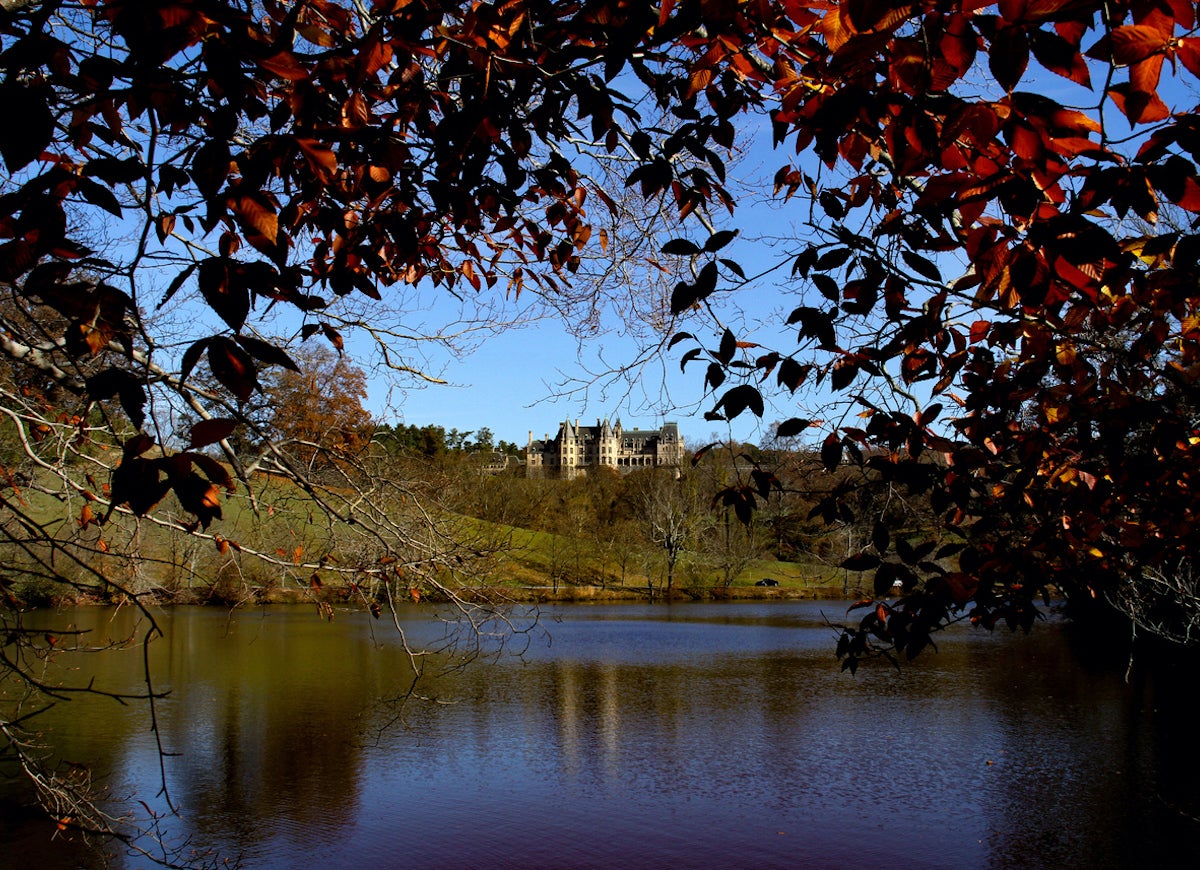
Fame wasn’t the impetus behind the construction of America’s most eminent estates, yet it has followed them from their creation to the modern day thanks to their inimitable architecture and renowned former residents. Read on to learn which historic house is considered the most buzz-worthy in each state.
Alabama – Gaineswood
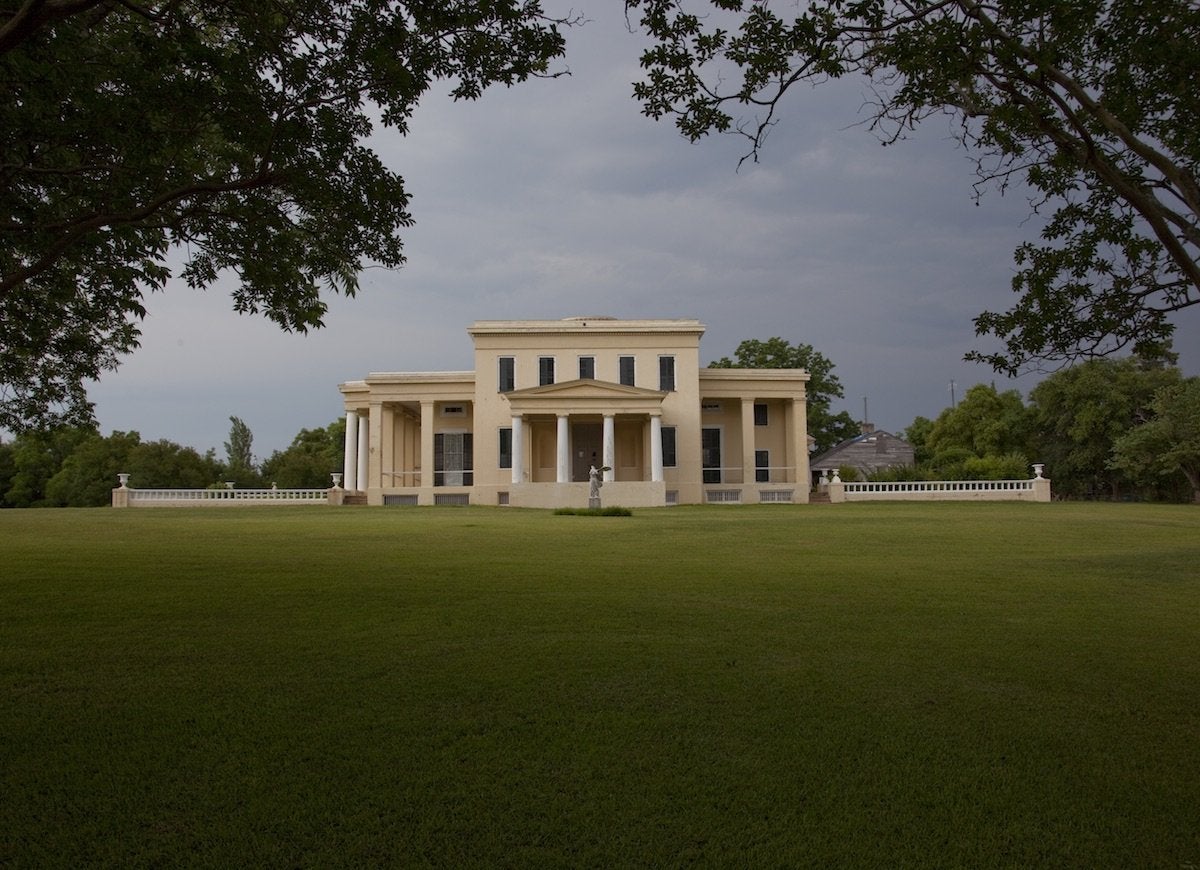
Antiquity buffs will spot all three Greek architectural orders on this former plantation home and present-day historic house museum that features a combination of fluted Doric columns, spiral-scroll-topped Ionic columns, and Corinthian pilasters that project from the walls. The now-famous home was built over the 20 years leading up to the start of the Civil War, largely by enslaved workers about whom little has been recorded (slave housing no longer stands on the estate). The house continued to serve as a private residence through the middle of the last century, when it was purchased by the state of Alabama and turned into a house museum in 1975.
Alaska – Alaska Governor's Mansion
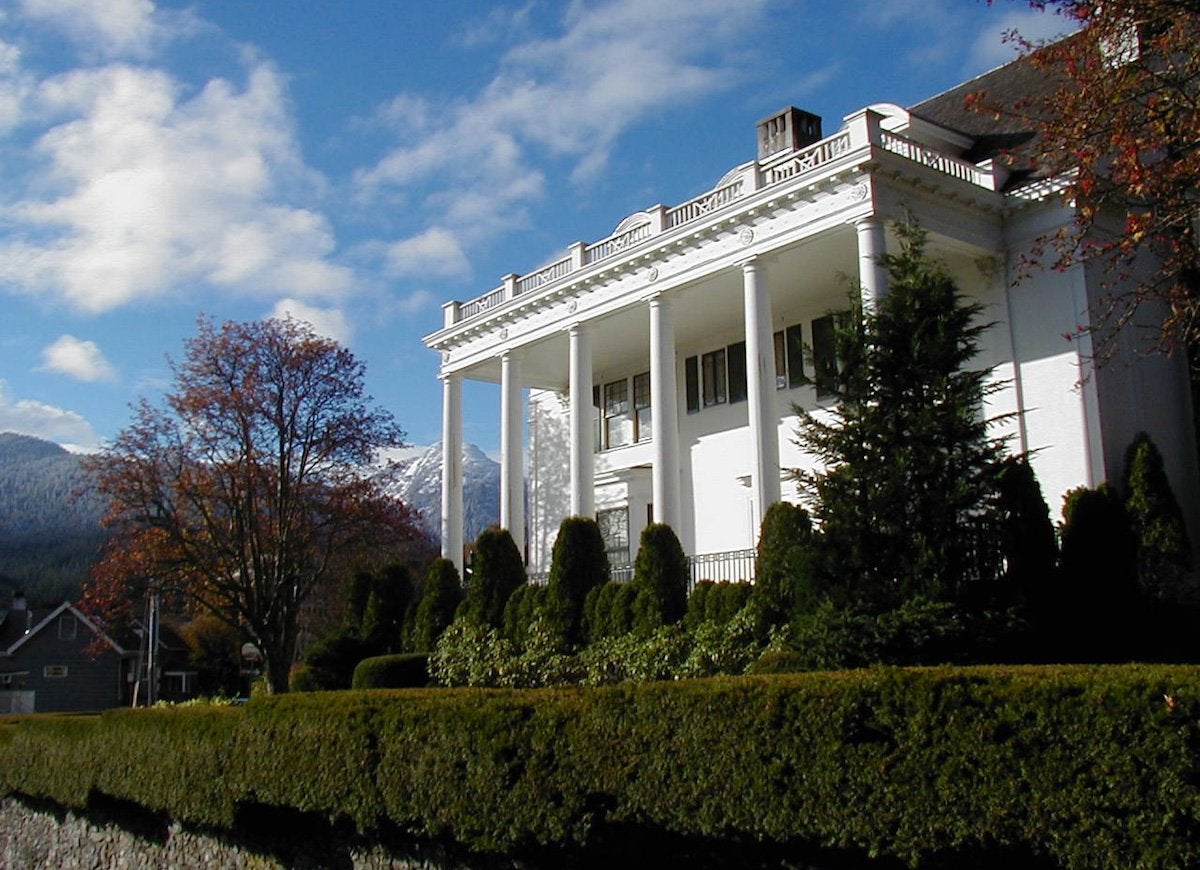
In 1912, Walter Eli Clark became the first in a long line of governors to take up residence in the Alaska Governor’s Mansion. The original construction cost $40,000, encompassed 12,900 square feet, and housed four bedrooms and three baths. More than 100 years and $2.5 million later, the house has expanded its footprint to 14,400 square feet and now contains 10 bedrooms, six baths, and a whopping eight fireplaces to keep the residents cozy during frigid Alaska winters.
Arizona – Taliesin West
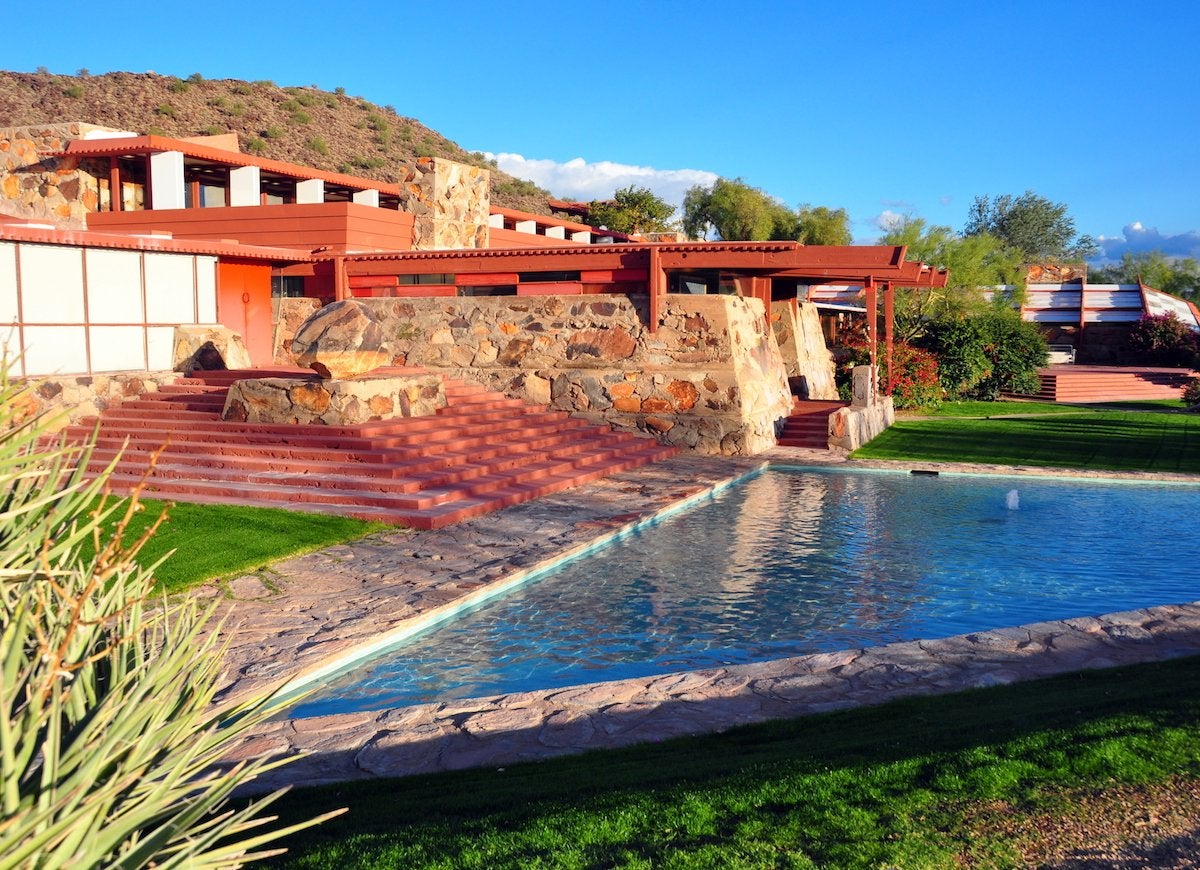
Now home to the Frank Lloyd Wright Foundation and the School of Architecture at Taliesin, this awe-inspiring architectural achievement once served as the winter residence of Wright himself. Visitors familiar with the work of the acclaimed architect will recognize his affinity for nature in the rock-walled cabaret theater and sunlight-filled drafting room, where Wright famously designed New York City’s Guggenheim Museum. To help his rock-clad home blend in with the surrounding environment, Wright even went so far as to transport boulders marked with prehistoric petroglyphs from the nearby hillside to the property’s sprawling acreage.
Arkansas – Johnny Cash Boyhood Home
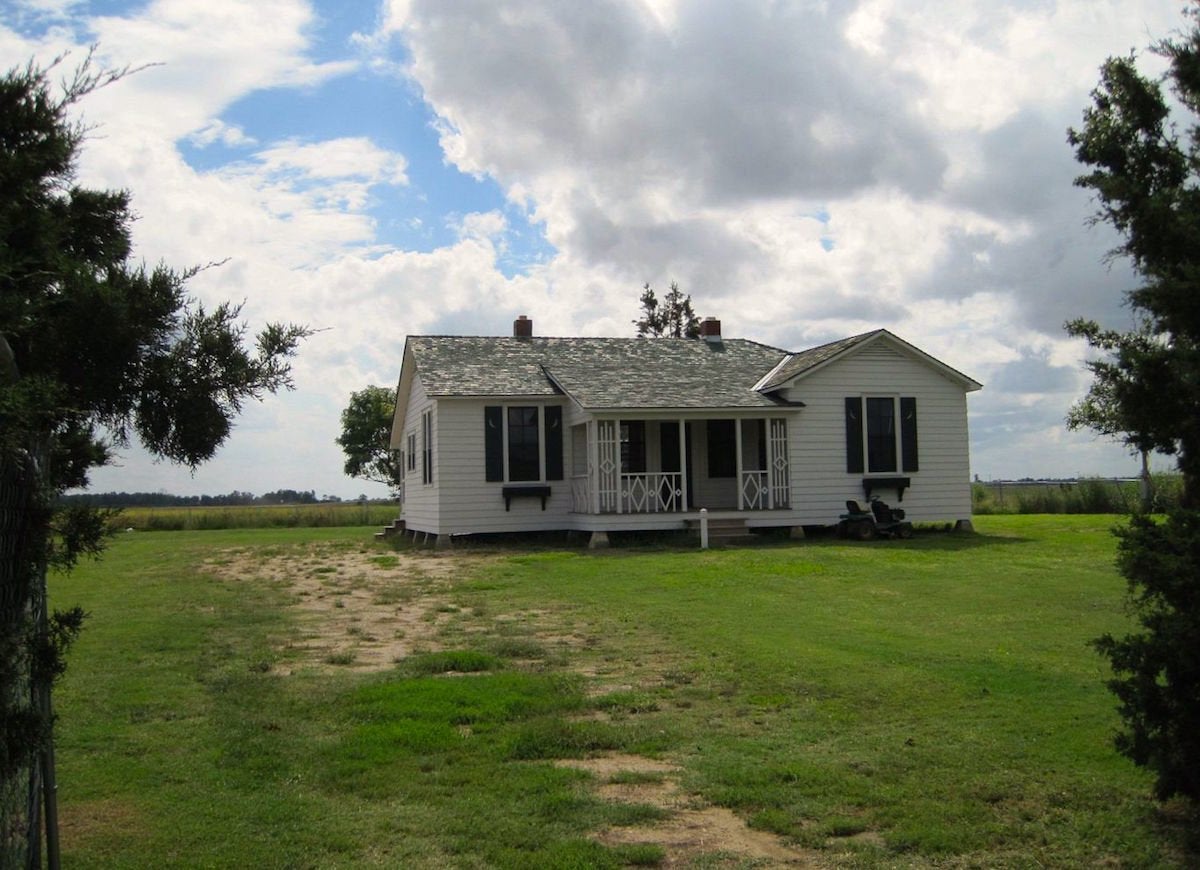
Believe it or not, the genre-defying country music legend behind iconic hits like “I Walk the Line” and “Ring of Fire” grew up in this humble home on a fertile 20-acre lot in Dyess, Arkansas. Now a visitor center owned by Arkansas State University, the former residence of young Johnny Cash features five rooms still filled with original Cash family furnishings. Although it may have lacked star power in 1935 when the Cash family moved in, it was a real steal for Johnny’s father, Ray, who nabbed the property for no money down.
California – Hearst Castle

This 90,000-square-foot home of newspaper tycoon William Randolph Hearst was a society hot spot in the 1920s and ’30s, thanks as much to the distinguished owner as to the lush gardens, luxe pools, sumptuous views, and private zoo. If you were lucky enough to score an invitation during the Castle’s glory days, you would have stayed in one of three Mediterranean-inspired guest houses that flank the main house, dubbed “Casa Grande.” Nowadays, you don’t need an exclusive invitation to roam the grounds—just a ticket. The estate, now a National Historic Landmark, offers tours to anyone who wishes to see the impressive structure, landscape, and resident herd of zebras up close.
Colorado – Molly Brown House
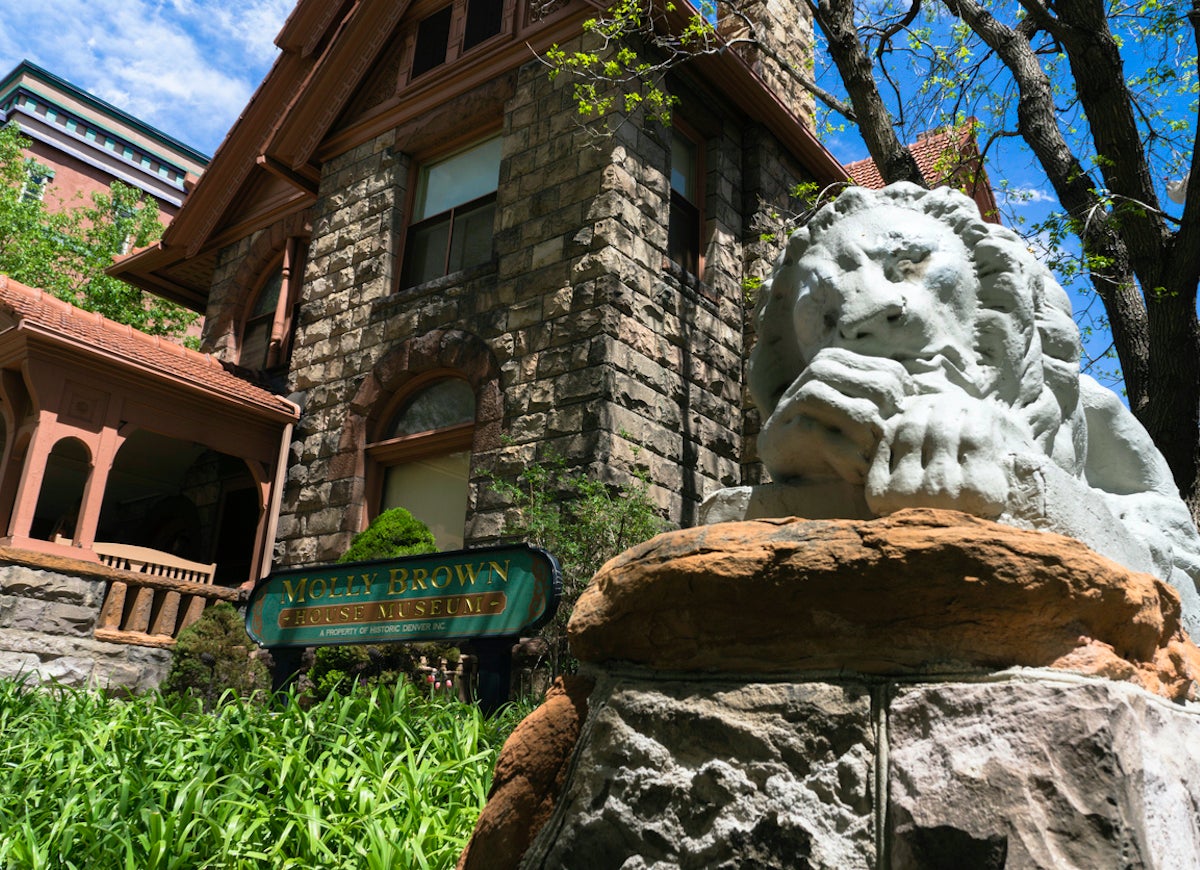
Like its former owner, who survived the sinking of the Titanic, this historic Victorian home has seen much in its 135-year history. Activist “Unsinkable” Molly Brown owned the house for 38 years, even converting it into a boardinghouse when the neighborhood declined during the Great Depression. Although the home was sold on Brown’s passing in 1932, it has since been converted into a house museum filled with exhibits detailing Brown’s life and impassioned pursuit of a better world.
Connecticut – Rye House
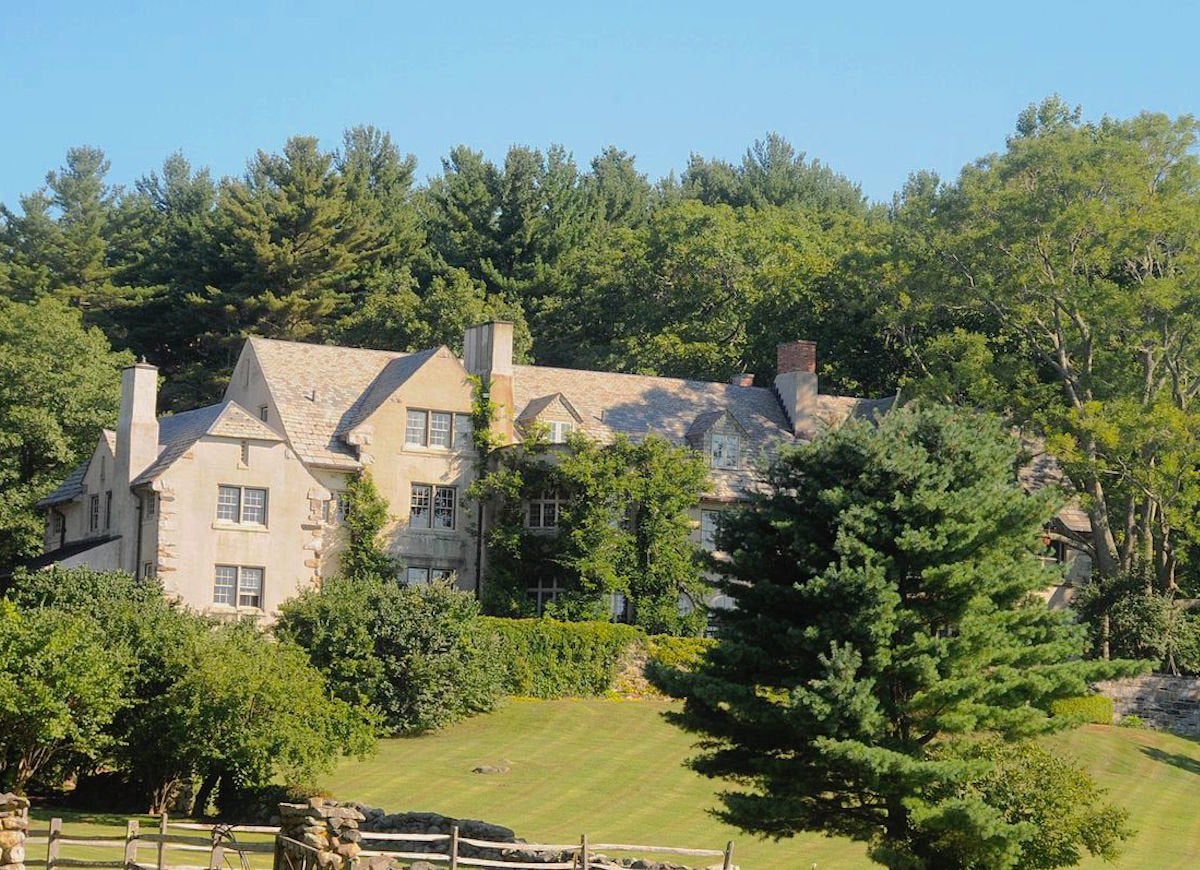
Move over, Martha’s Vineyard—the ultimate in luxury summer destinations is actually in Connecticut at the Rye House. The Tudor Revival estate built for Isabella Curtis, the widow of New York City banker Charles Curtis, plays host to an Olympic-size pool, a tennis court, and a two-story gardener’s cottage. Of course, the Curtises weren’t the only high-flyers to lay claim to the 52-acre estate. More recently, celebrities including Anderson Cooper and former Miss Connecticut Karen Kopins Shaw have called the Rye House home.
Delaware – Nemours
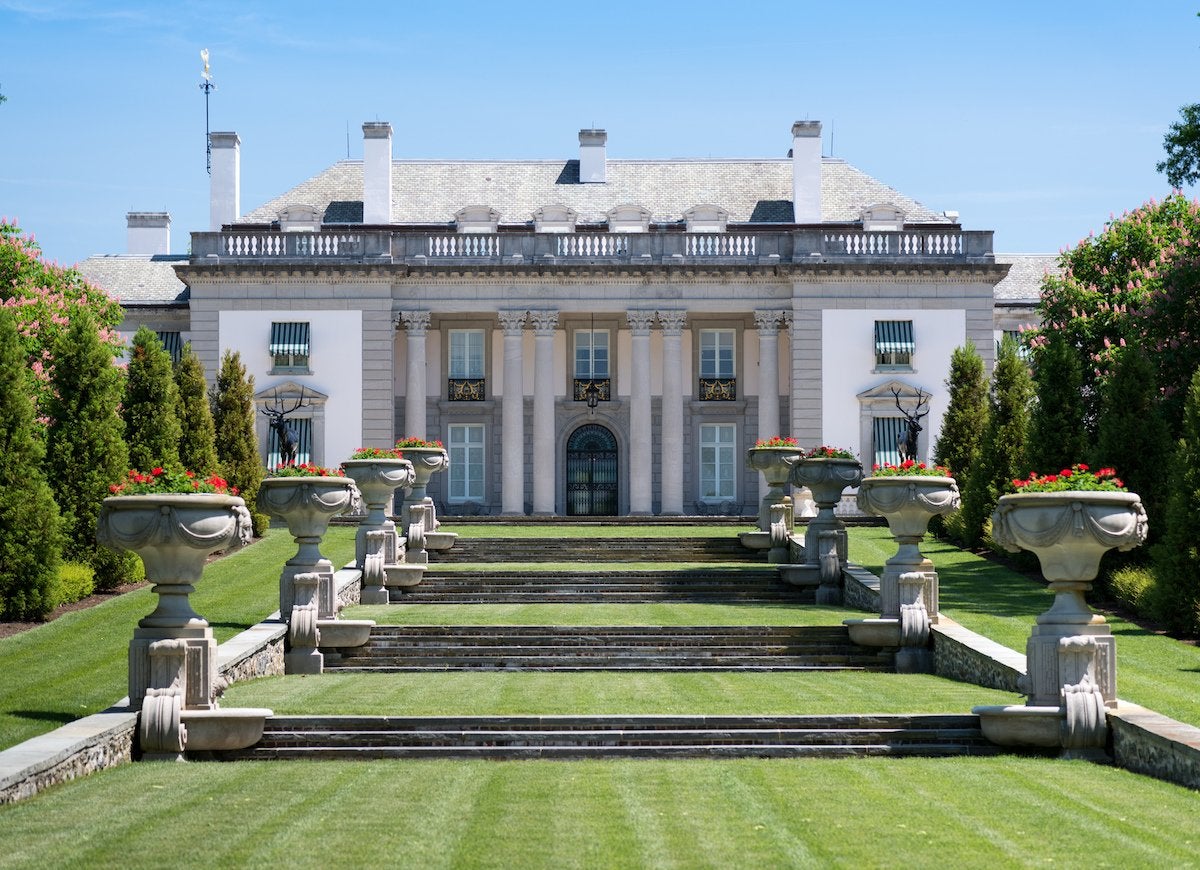
flickr.com via Robert Lyle Bolton
Whether you have a green thumb or a brown one, you’ll be stunned by the lush 200-acre landscape of this mega-mansion, which hosts the largest French garden in North America. Beyond the lawn, a French-inspired interior contains 77 luxe rooms, including a bowling alley, billiards room, and the chauffeur’s garage. The estate name, “Nemours,” derives from the French town of the same name, which the great-great-grandfather of the estate’s owner, industrialist Alfred I. du Pont, represented in the French Estates-General.
Florida – Ernest Hemingway Home

Some of Ernest Hemingway’s most notable works, including such novels as “To Have and Have Not” and short stories like “The Snows of Kilimanjaro,” were penned in this very house. A dream retreat for a private yet adventurous writer, the dramatic French Colonial-inspired dwelling, built in 1851, is rife with towering windows and pale green shutters for privacy as well as a wraparound balcony that affords prime views of Key West.
Georgia – Swan House
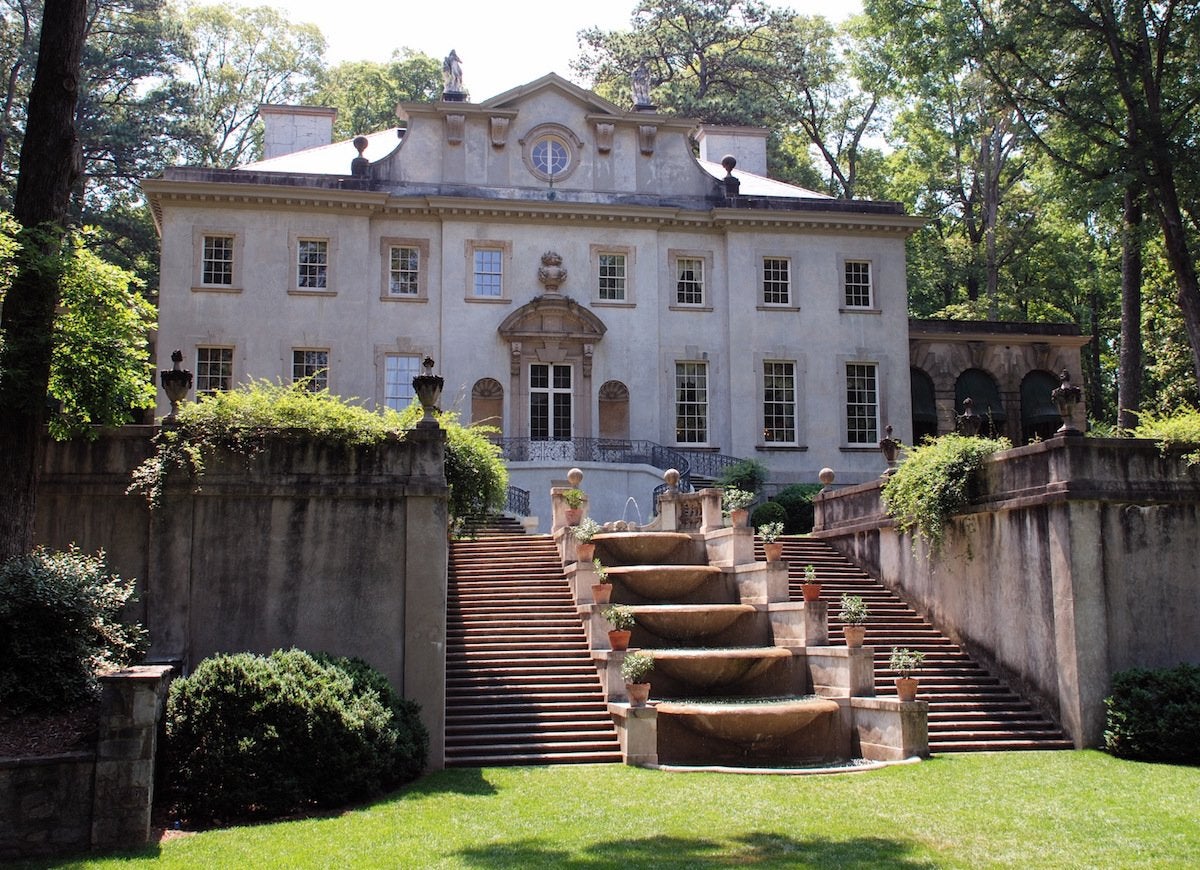
The striking opulence of this Classical-meets-Renaissance-Revival estate, now a historic house museum in Atlanta, earned it a role in Hollywood hits from “The Hunger Games” to “Little Darlings.” As if the sumptuous terraced garden and cascading fountain weren’t enough to inspire a visit to the famed 89-year-old residence, formerly home to cotton tycoons Edward and Emily Inman, swan sculptures and swan-themed decor scattered in and outside the property augment its beauty and inspired the home’s memorable name.
Hawaii – Shangri La House (Doris Duke)

Wikimedia Commons via Daderot
Doris Duke’s travels throughout the Islamic world led her to design a mansion complete with Moroccan painted ceilings, an Indian Mughal-inspired garden, and a playhouse resembling a miniature version of an Iranian palace. Now owned by the Doris Duke Foundation for Islamic Art, the 4.9-acre estate offers public tours of the grounds and rooms, which are filled with more than 2,500 artifacts collected by Duke over a period of 60 years.
Idaho – The Standrod Mansion
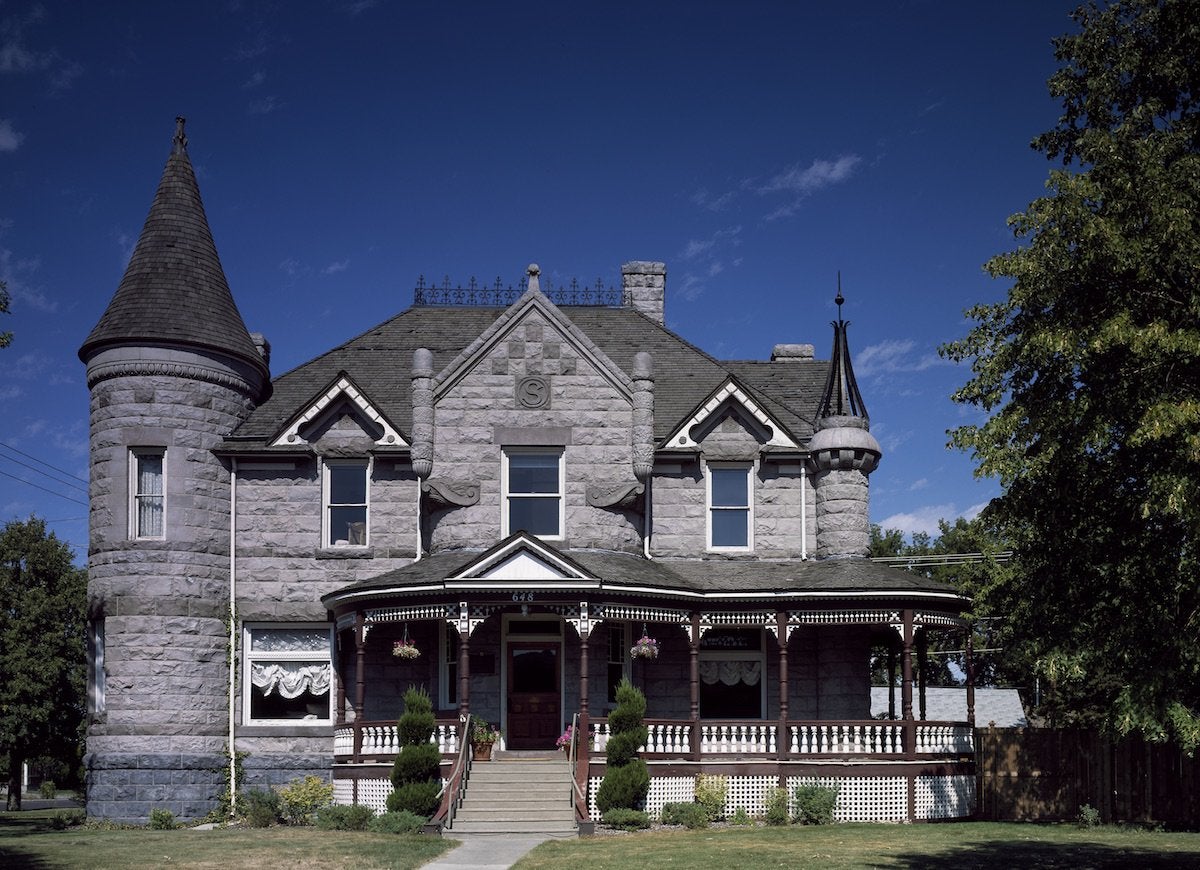
Judge Standrod took a risk by delegating the construction of his new home to lesser-known architect Marcus Grundfor. But the gamble clearly paid off, as today the Standrod Mansion has become an enduring part of Idaho’s landscape and history. The Chateauesque estate incorporates a steeply pitched roof, ornate cresting, leaded glass windows, and a prominent “S” proudly stamped over the main entrance of the home.
Illinois – Farnsworth House
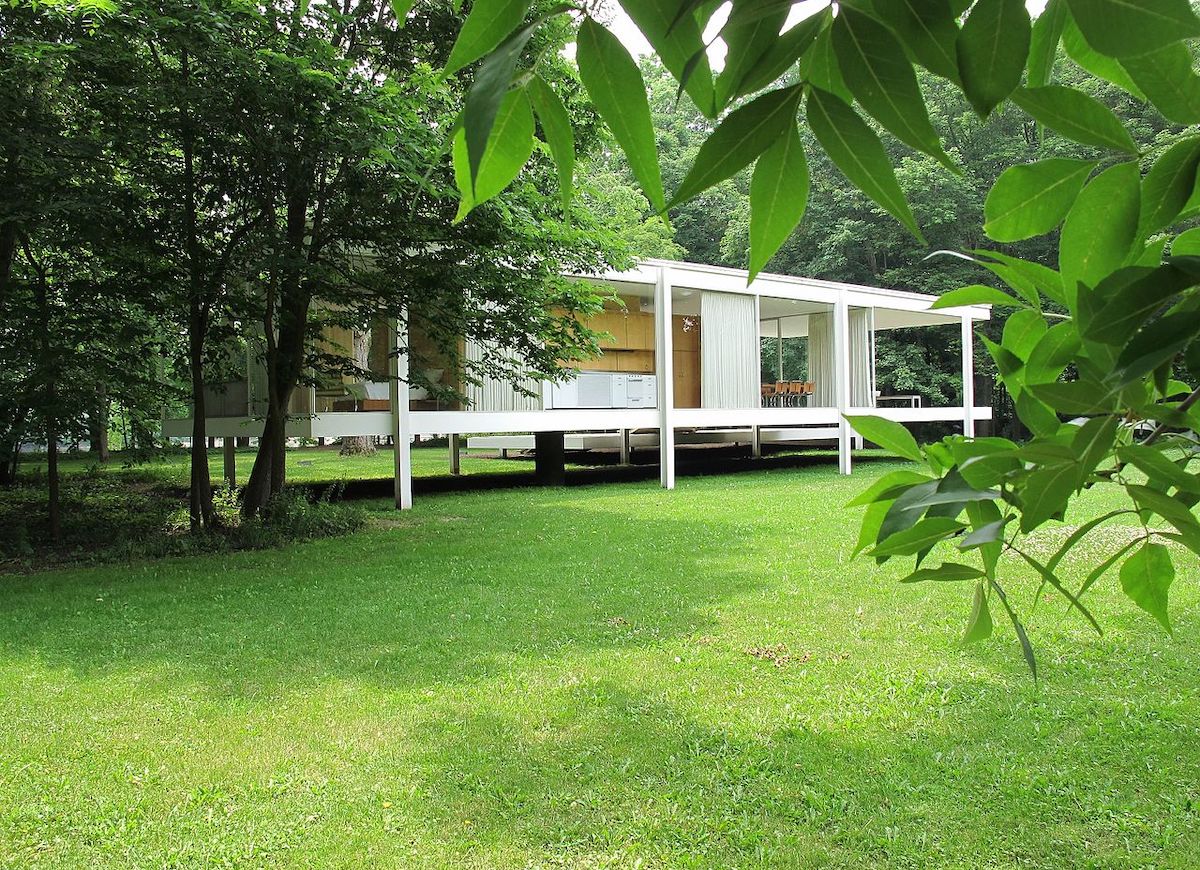
Wikimedia Commons via Farnsworth House
German-American architect Ludwig Mies van der Rohe, a winner of the Presidential Medal of Freedom, designed this barely there building as a country estate for Dr. Edith Farnsworth. The sleek one-room abode with tip-to-toe glass walls was born of the International Style architectural movement, which emphasized planar surfaces, open spaces, and cantilevered structures of glass and steel.
Indiana – Morris-Butler House
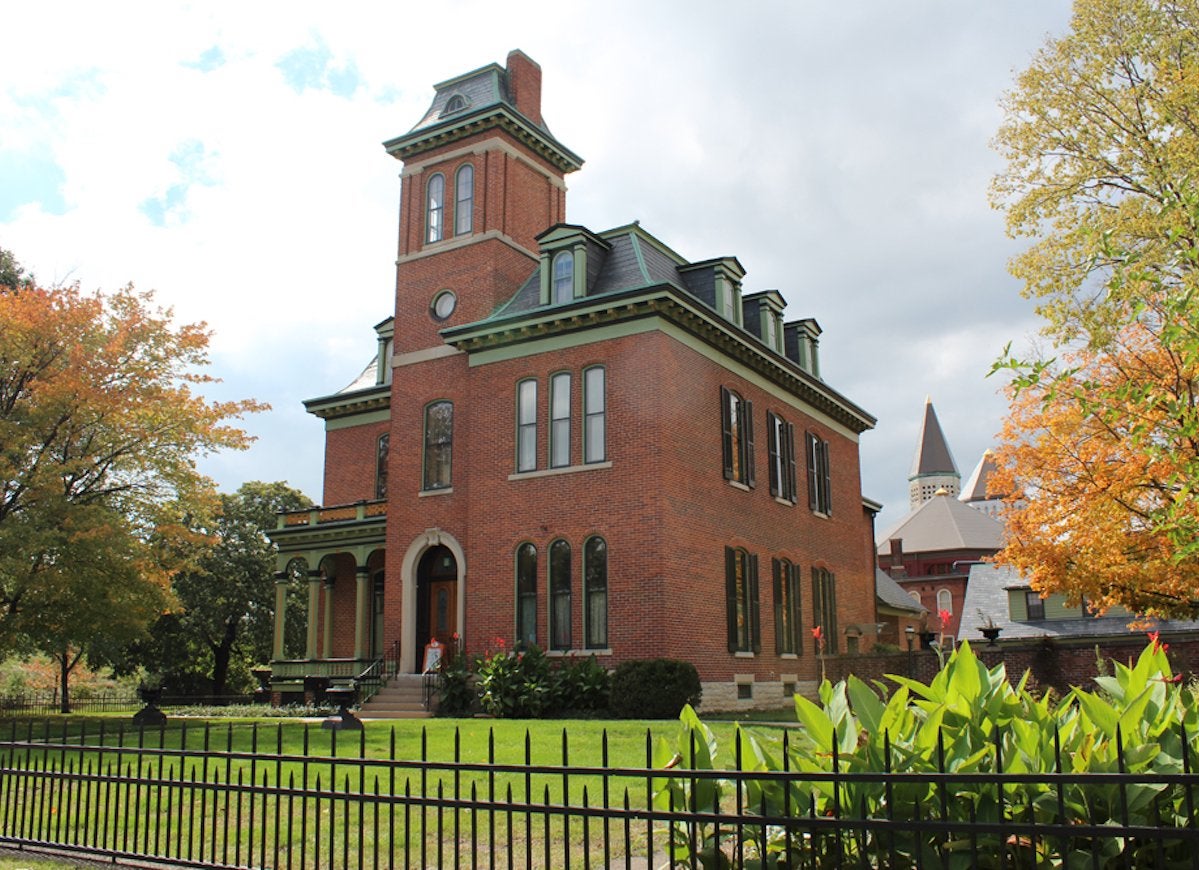
A classic example of Second Empire architecture, the red brick exterior of the Morris-Butler House is topped with a mansard roof and enclosed by a stately fence. The two-story-plus-attic dwelling has a varied past, having served as the house of businessman John D. Morris, lawyer Noble Butler, an art studio, an art gallery, and an apartment building. It’s now open for special events and programs, and is available for rental for weddings and other celebrations.
Iowa – American Gothic House
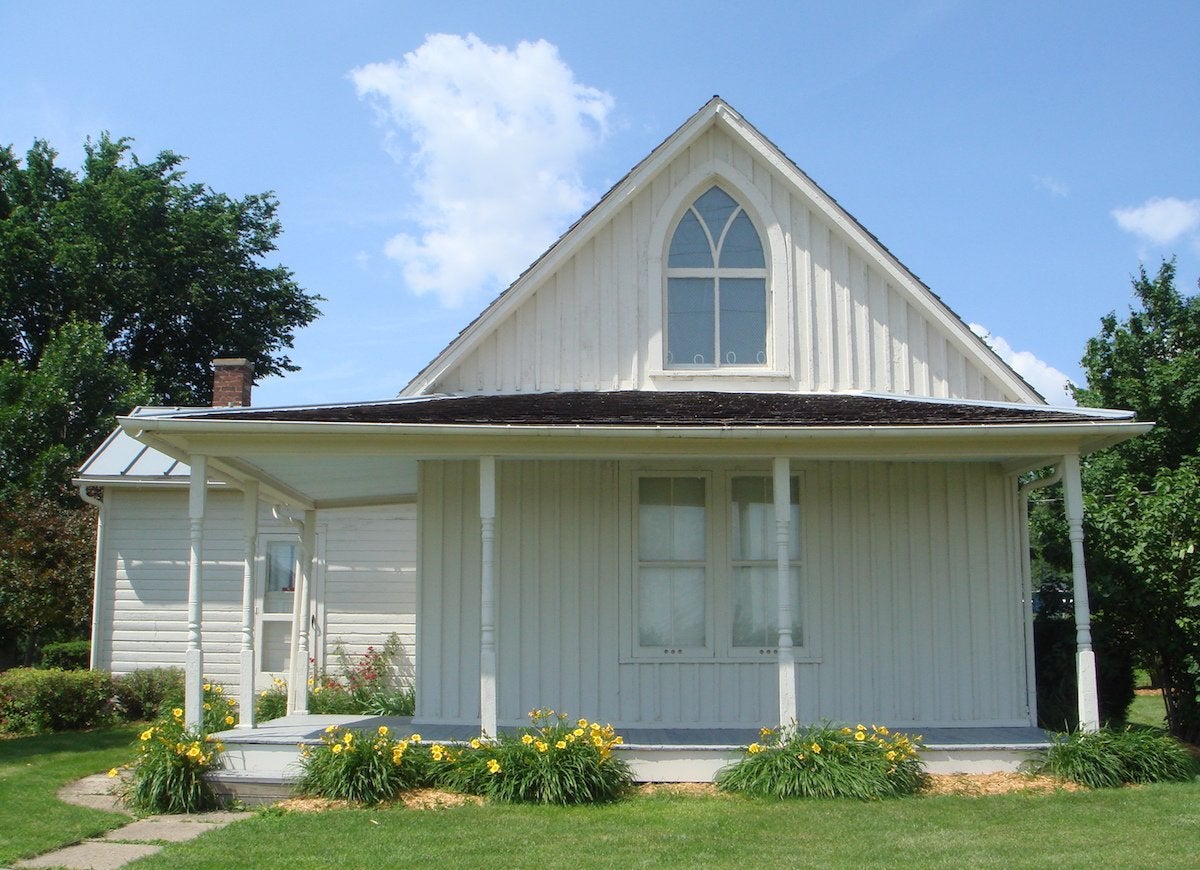
If the board-and-batten facade and prominent clerestory window on this little white cottage look familiar, it’s because the Carpenter Gothic dwelling served as the backdrop to Grant Wood’s famous painting “American Gothic.” Impressively, Wood captured the home in exquisite detail after visiting it only twice. Humble in size though it may be, the 546-square-foot home managed to squeeze in all eight of builder Charles Dibble’s family members, with room to spare for himself and his wife.
Kansas – Amelia Earhart House Museum
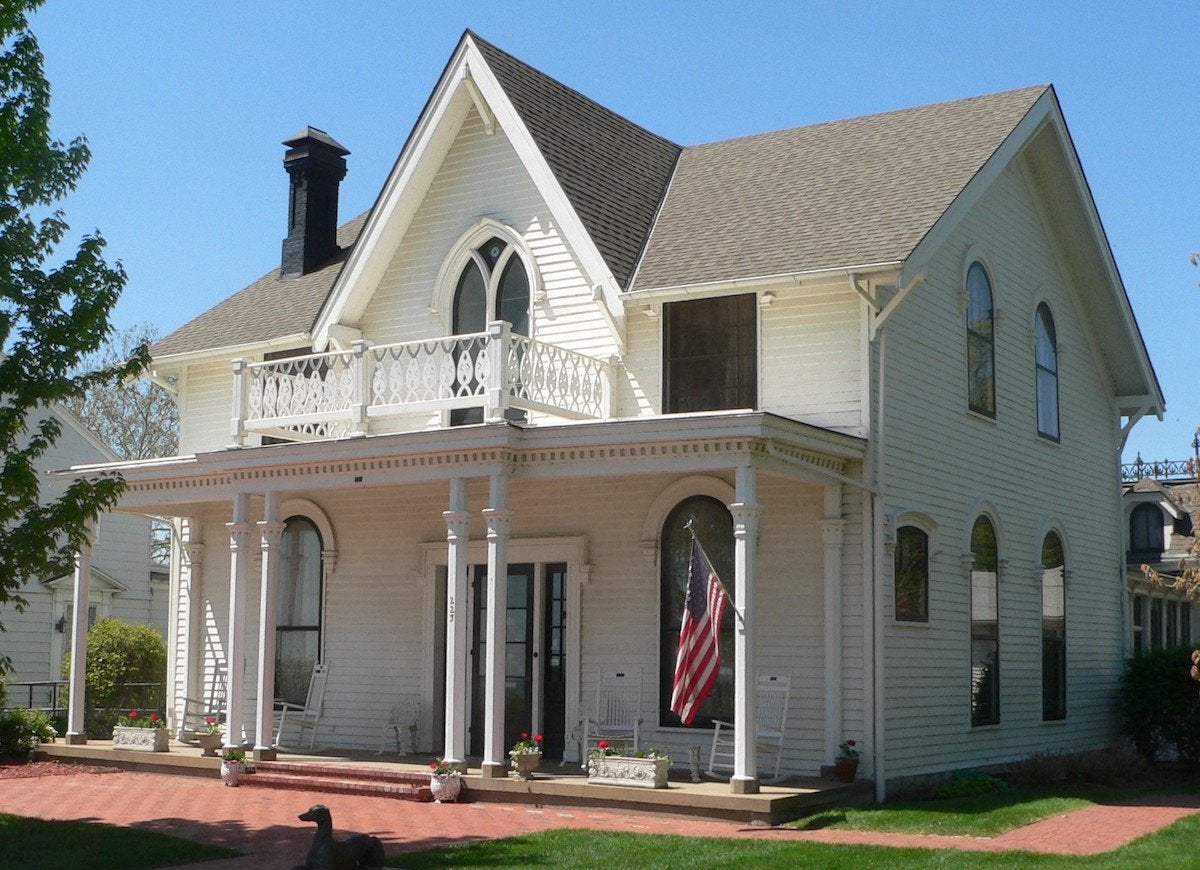
The first female pilot to fly across the Atlantic was welcomed into the world in this house in Atchison, Kansas, which once belonged to Amelia Earhart’s grandfather. The Gothic Revival-style wood-framed residence, now the Amelia Earhart Birthplace Museum, is maintained by the Ninety-Nines, an organization of female aviators of which Earhart was not only a member, but also the first president.
Kentucky – Conrad-Caldwell House Museum
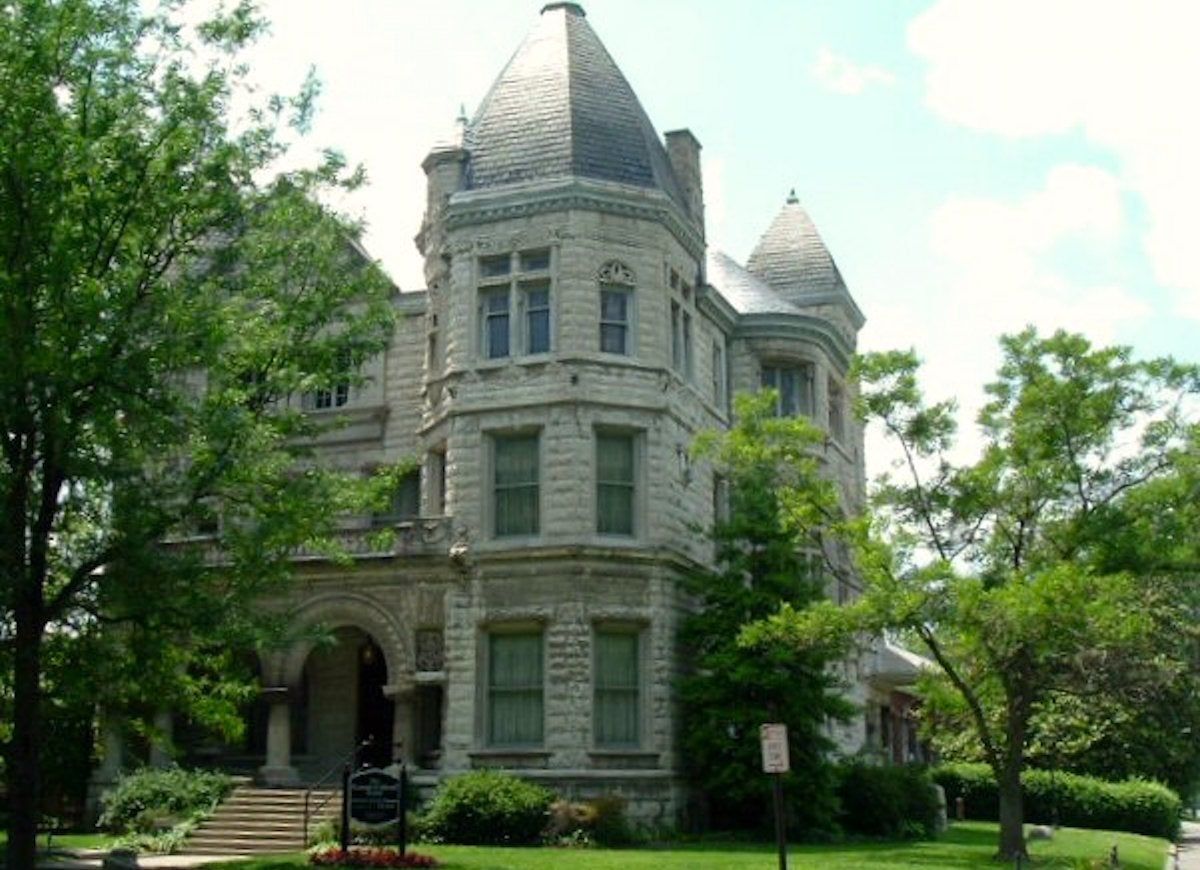
Of all the stately Victorian homes situated in the Historic Old Louisville neighborhood, none is more storied than the Conrad-Caldwell House. Fashioned after the Richardsonian Romanesque architectural style, the residence evokes old-world intrigue indoors and out with its stained-glass windows, parquet floors, and a stone facade adorned with gargoyles. The imposing abode, purchased by William Caldwell from businessman Theophilus Conrad in 1908, is now a nonprofit house museum filled with family artifacts dating to the Edwardian era.
Louisiana – Oak Alley Plantation
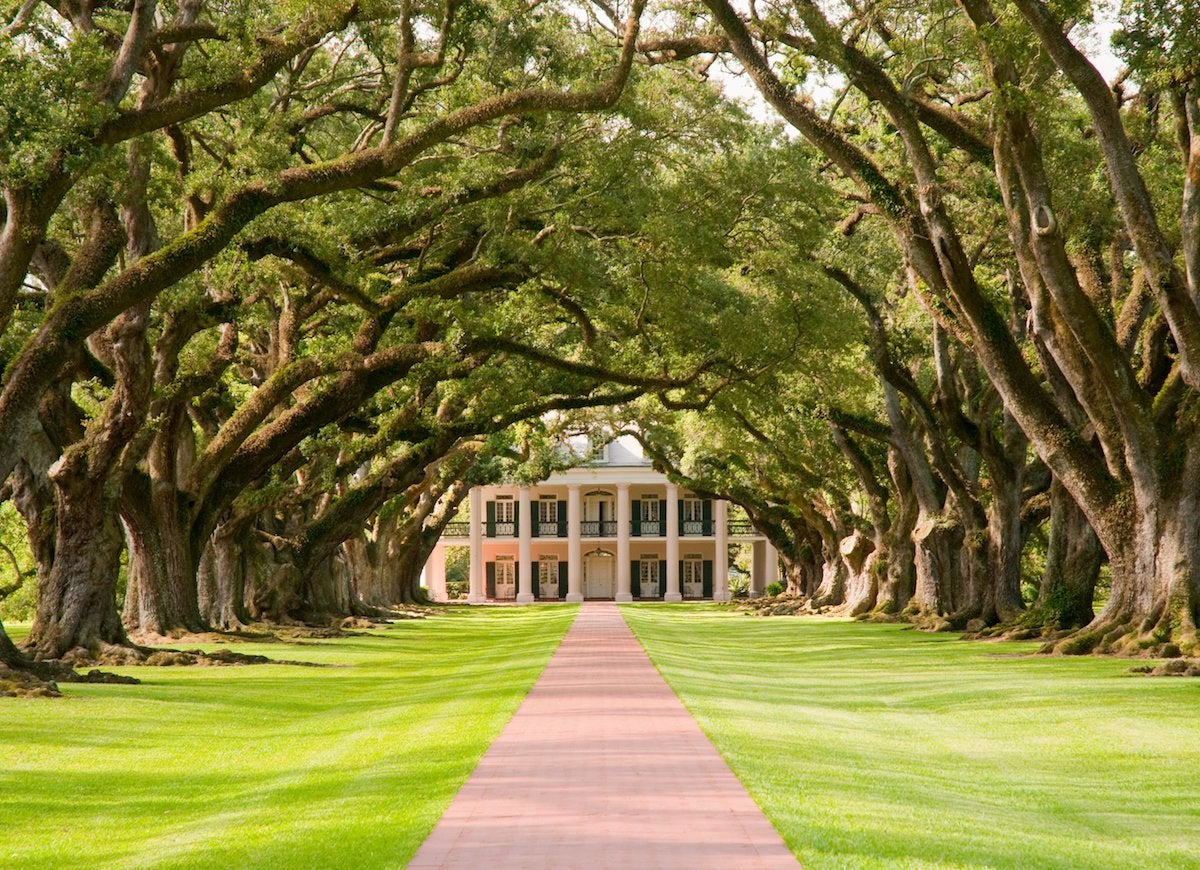
Oak Alley Plantation may be named after the 300-year-old red brick allée, or tree-lined walkway, that leads to the entrance, but the Greek Revival-style house that lies just beyond the rows of graceful live oak trees is an equally formidable feature of this 25-acre estate. In 2012, Oak Alley built slave quarters to resemble those that once stood on the property; amidst calls for plantation museums to reckon with their racist pasts, this museum has made changes to their tours in order to tell a more truthful story of the site’s history.
Maine – Castle Tucker
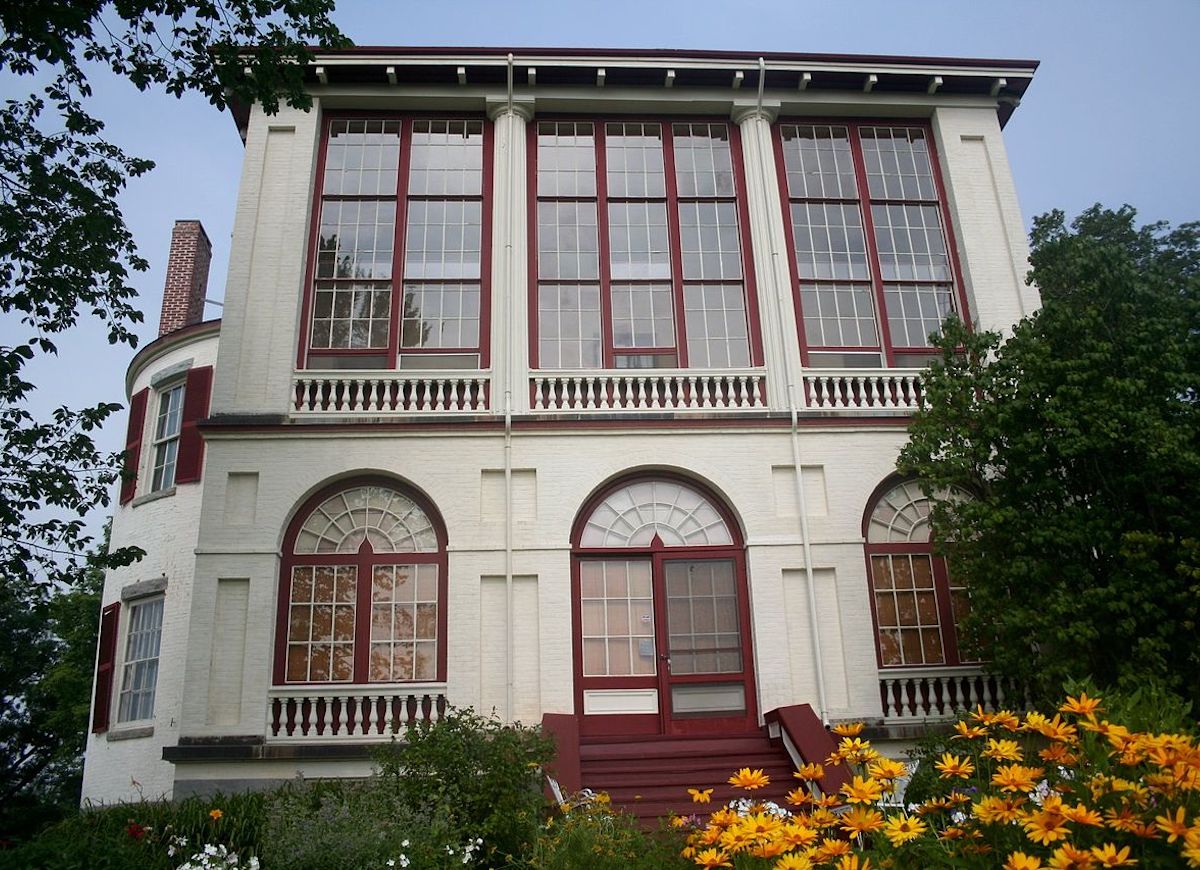
Wikimedia Commons via Rolf Müller
From a judge to a shipping magnate to a historic preservation society, this Northeastern country house has traded hands numerous times during its 210-year life span. Fortunately for visitors to the modern-day Castle Tucker, thoughtful maintenance has kept the brick exterior, piazza windows, and balustrades of the Regency-inspired residence as striking today as they were on the day the home was completed in 1807.
Maryland – Edgar Allan Poe House and Museum
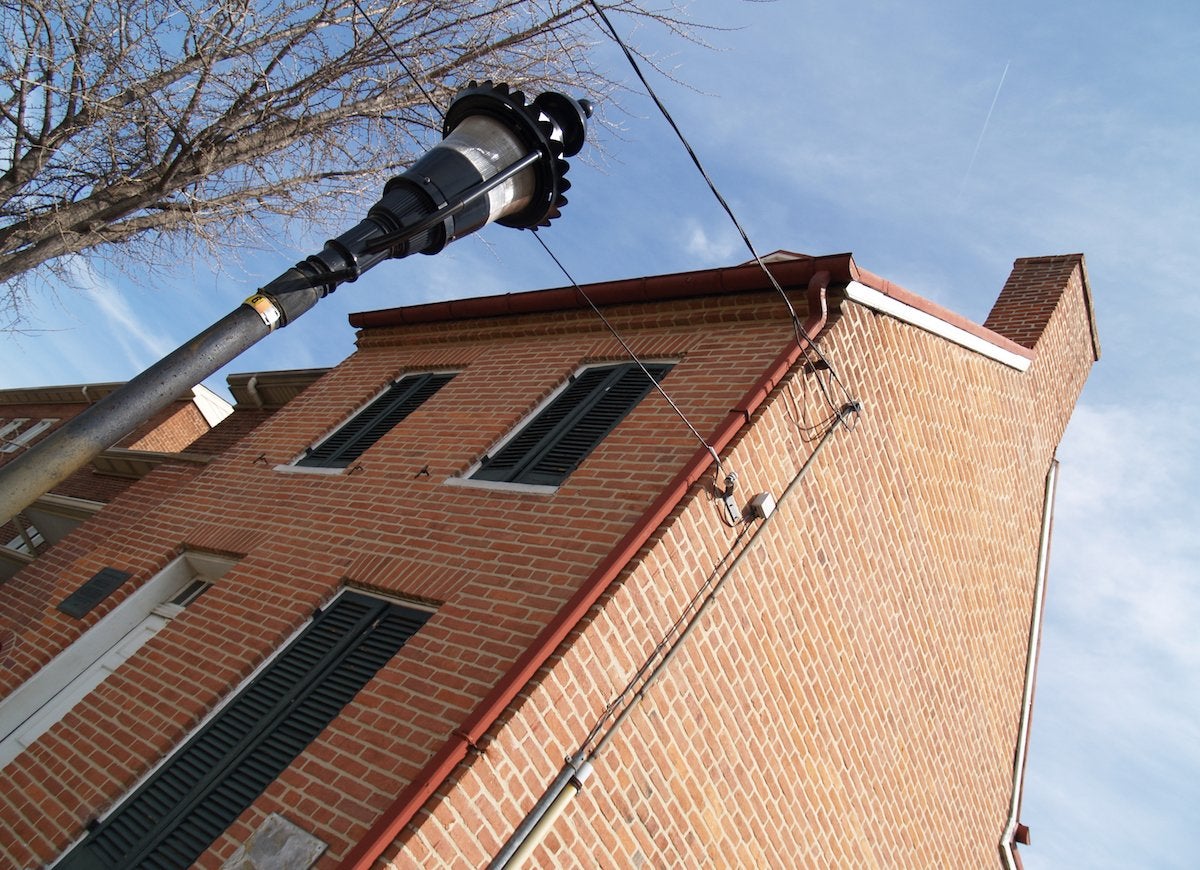
In contrast to his macabre works of fiction, Edgar Allan Poe’s former residence near downtown Baltimore looks surprisingly cozy, with its red brick exterior and steeply pitched roof. Poe lived in the archetypal row house with his aunt and cousins following his departure from West Point. Although he left the dwelling in 1835, many of his possessions, from chairs to lap desks, are preserved within the house museum.
Massachusetts – The House of the Seven Gables
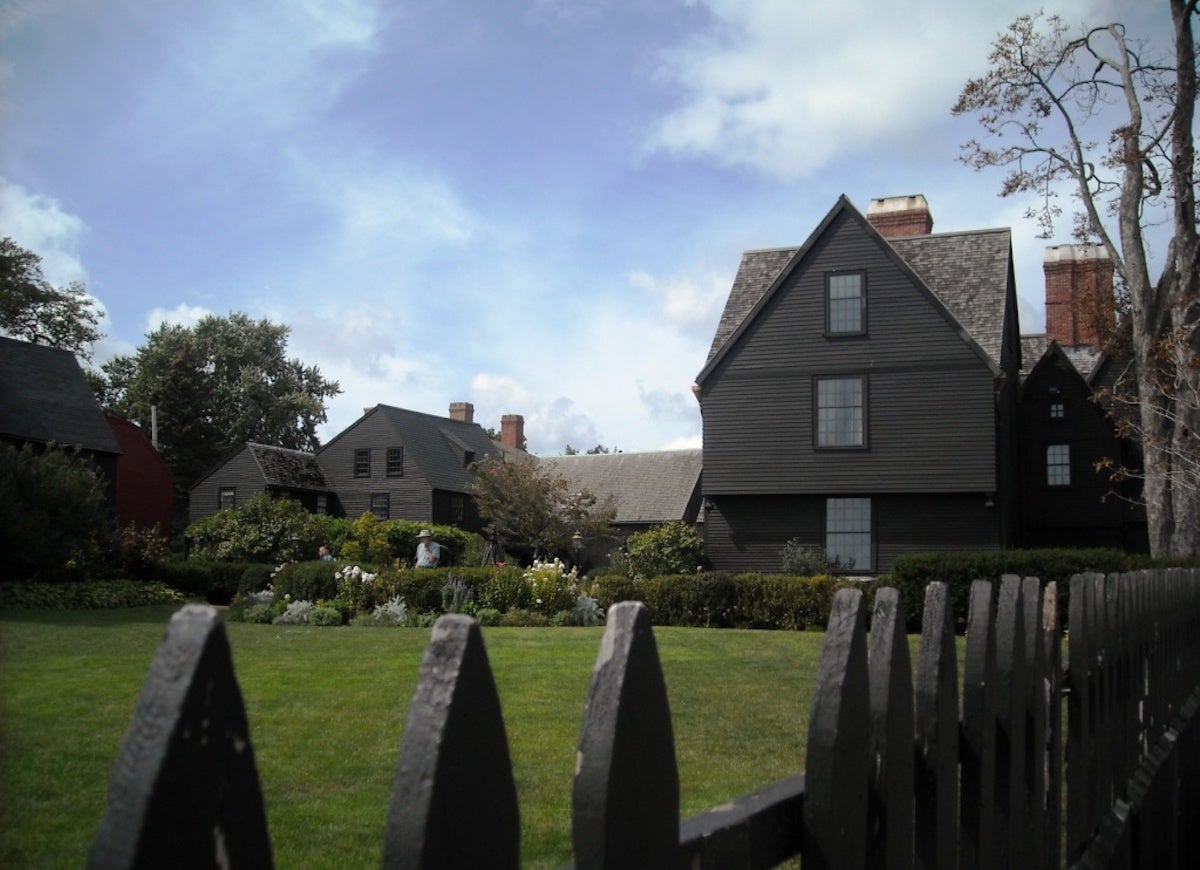
Wikimedia Commons via Elisa.rolle
Nathaniel Hawthorne’s novel “The House of the Seven Gables” may have put the eponymous estate on the map, but this Salem residence, built for Captain John Turner, stands on its own virtues. The colonial home (later renovated in the Georgian style) features a secret staircase for attic access and a dramatic pitched roof that complements its slate-colored facade. In a nod to lovers of the book, Caroline Emmerton, who acquired the property in 1908, had a cent-shop installed on the premises resembling the one opened by the novel’s protagonist.
Michigan – Honolulu House
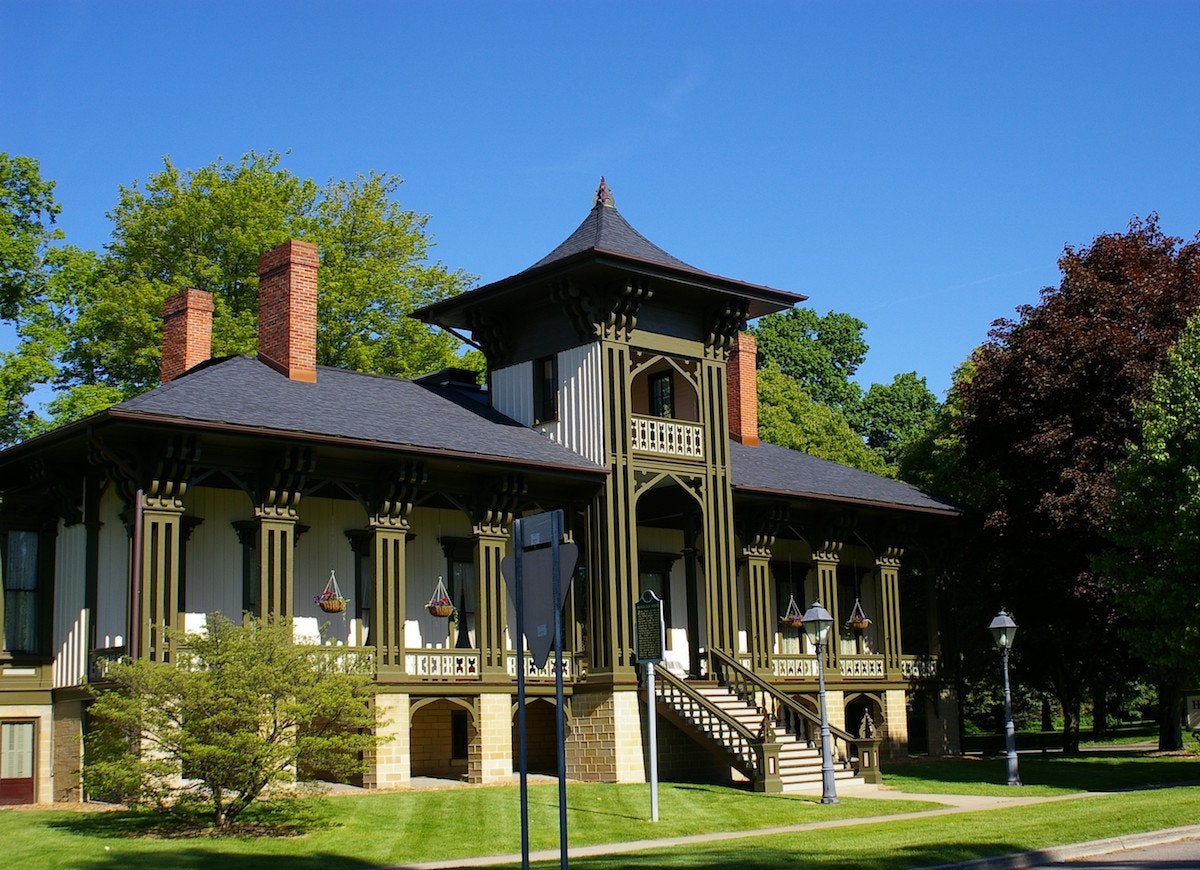
You don’t have to book a ticket to Oahu to experience a Hawaiian paradise. Marshall, Michigan, has its own island-inspired hangout: the Honolulu House, an Italianate-style estate with Hawaiian flourishes like a wraparound porch and walls painted with tropical scenes. Who would build a Hawaiian-inspired home in the Rust Belt? Former Michigan Supreme Court Justice Abner Pratt, who not only lived on the islands at one time but also served as U.S. Consul to Hawaii during the Buchanan administration.
Minnesota – Glensheen Historic Estate
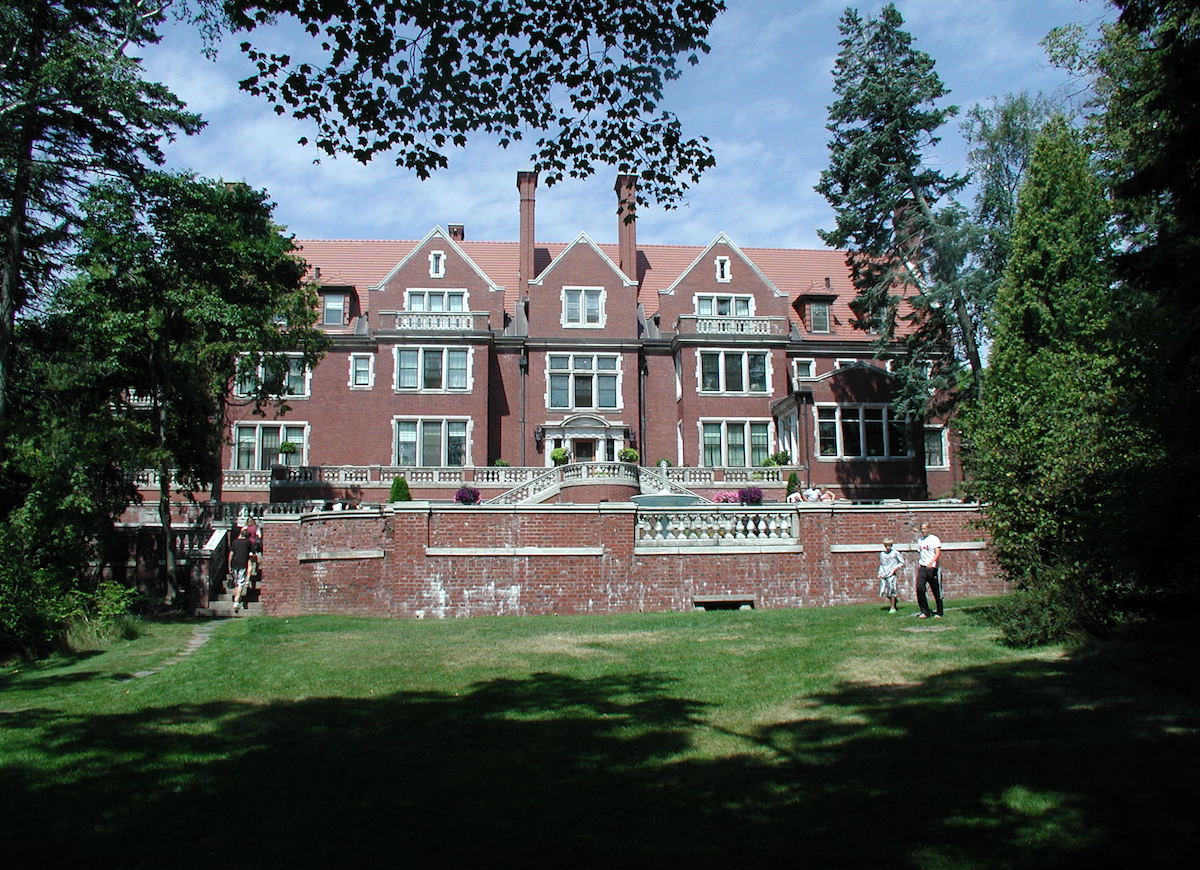
Wikimedia Commons via Learjet
Even if lake living isn’t for you, it’s hard to turn up your nose at the 39-room Glensheen Historic Estate, a waterfront home with its own boathouse on Lake Superior. Designed and built for noted lawyer Chester Congdon, the opulent home impresses visitors with its artful marriage of diverse architectural styles, from Victorian to Art Nouveau. Interior designer William French even went so far as to design furnishings to suit the style of each room.
Mississippi – Longwood Plantation

Wikimedia Commons via Library of Congress; Carol M. Highsmith
When Haller and Julia Nutt ordered construction on this plantation home in the 1860, they may not have foreseen how the outbreak of the Civil War would upend their plans. Northern craftsmen who were called in to build the main house, using bricks made on-site by slaves, fled on the eve of war. Though the now-famous octagonal exterior and its Byzantine-style dome were largely finished, Nutt’s financial ruin during the war prevented the completion of all but nine of a total of 32 planned rooms. The family moved into the basement floor of the home as an interim measure, but Haller died of pneumonia before either the war or the home’s construction came to an end. In 1971, the unfinished house, dubbed “Nutt’s Folly,” became a National Historic Landmark.
Missouri – Daniel Boone House
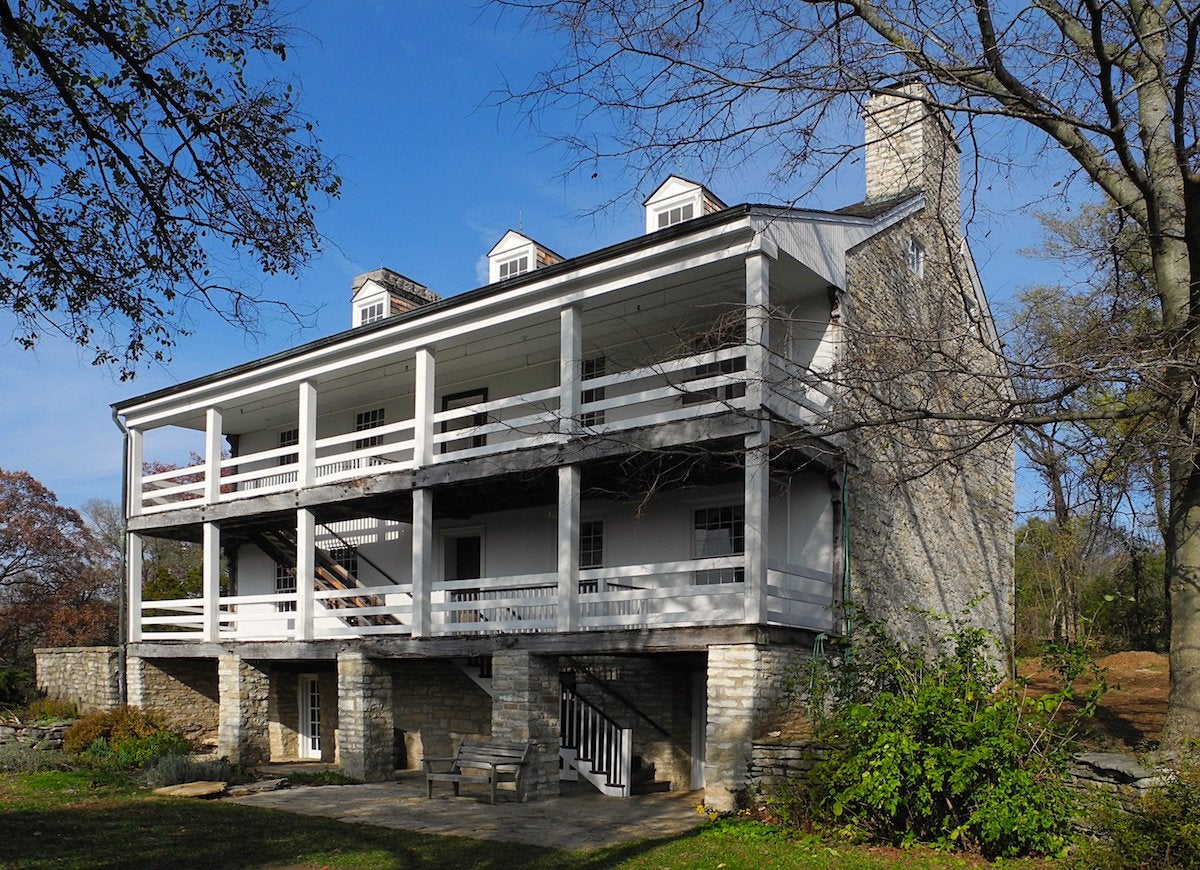
Frontiersman Daniel Boone secured a place in history by exploring and settling Kentucky, but it’s Missouri where he chose to live out his days after the American Revolution. Now a house museum, the four-story Georgian-style home, hand-built of black walnut and quarried Missouri limestone, contains some of Boone’s personal effects, including rifles and his writing desk.
Montana – Moss Mansion
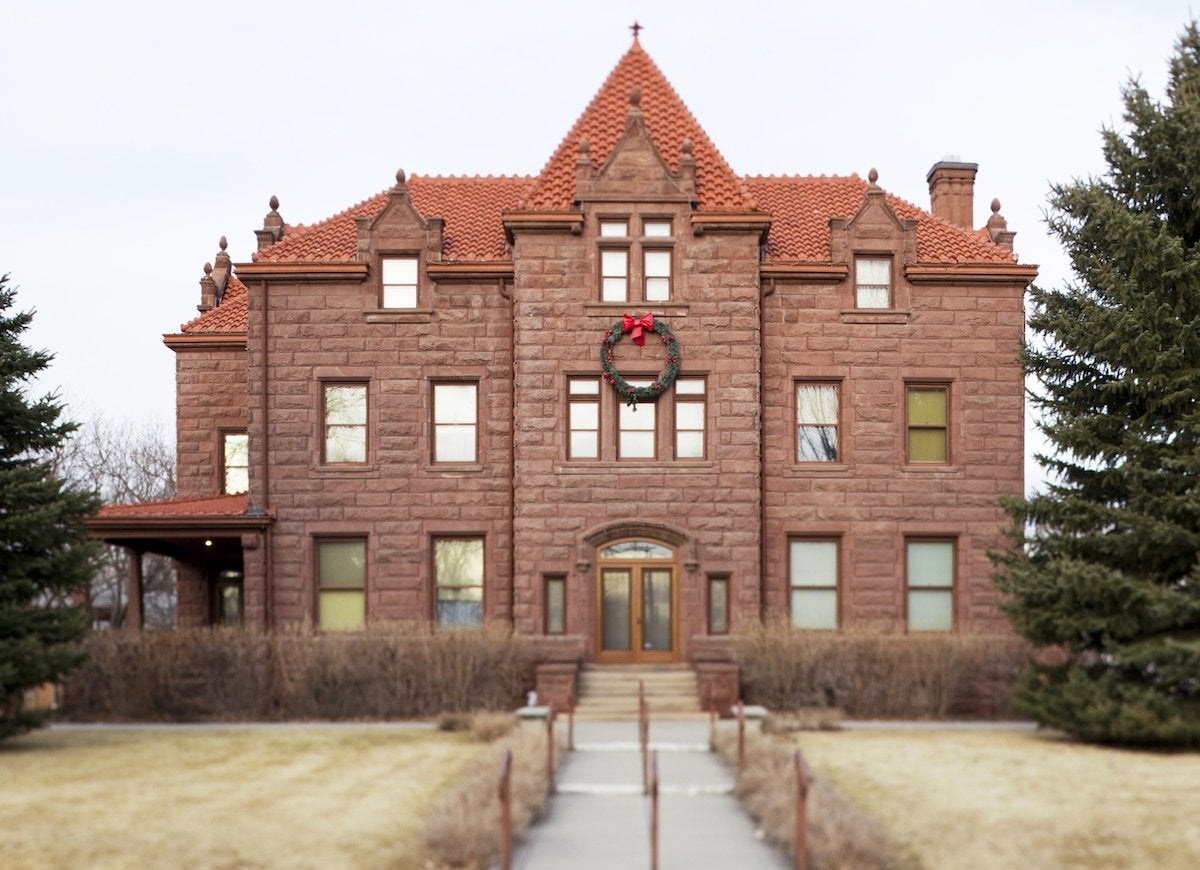
Appearing in period films “Son of the Morning Star” and “Return to Lonesome Dove,” the Moss Mansion in Billings, Montana, was built in 1903 by entrepreneur Preston Boyd (P.B.) Moss for all of $105,000. The three-story red sandstone structure has 28 rooms and still retains the original marble fireplaces, walls with gold threading, heated indoor plumbing, and a call system for servants, along with original furnishings, drapes, and other decor. The Moss family occupied the mansion until the 1980s, when the Billings Preservation Society took over the property. Today, you can visit and tour this lovely home or rent it for large events.
Nebraska – Joslyn Castle
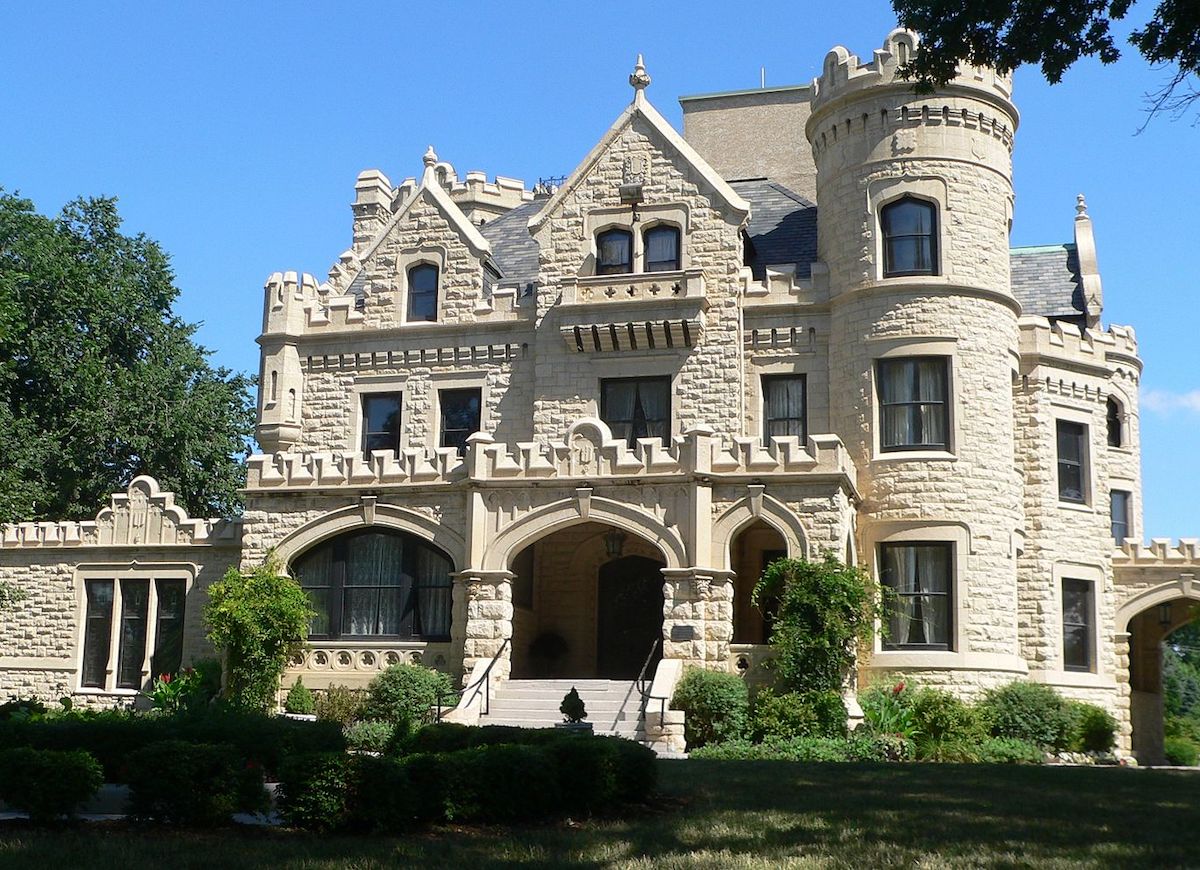
Wikimedia Commons via Ammodramus
Completed in just under 11 months in 1903, the impressive Scottish-style Joslyn Castle is located right outside Omaha, Nebraska. Built by George and Sarah Joslyn, the castle cost $250,000 at the time, which translates into roughly $6 million today, adjusted for inflation. Built of limestone, the 19,360-square-foot home contains 35 rooms, including a reception hall, music room, library, ballroom, and drawing room, and is richly decorated with mosaics, wrought iron, carved wood, stained glass, and chiseled stone. From 1944 to 1989, Joslyn Castle served as the ritzy headquarters of the Omaha Public School District, but today, the Joslyn Castle Trust owns and maintains the structure, which is open for viewing several days each month.
Nevada – Mackay Mansion
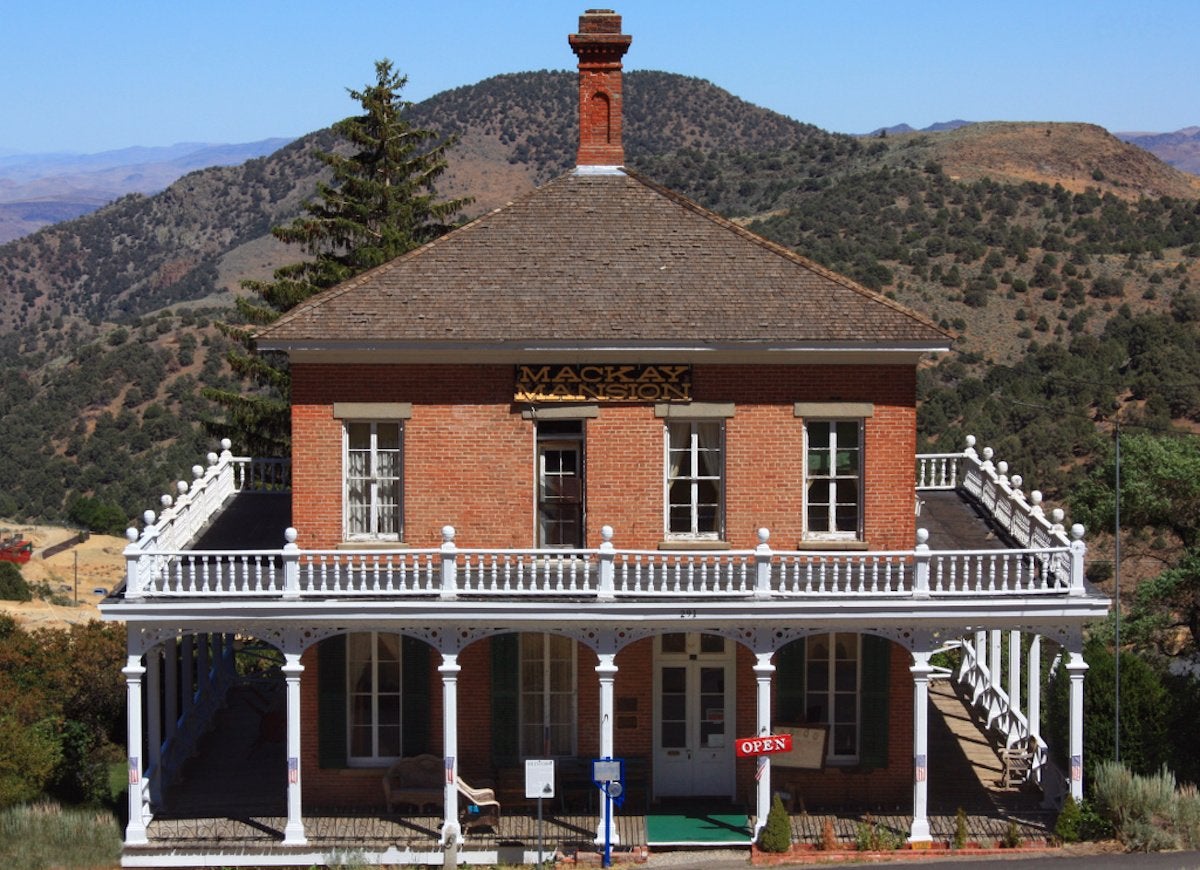
Rumored to be haunted by several ghosts, including a little girl dressed in white who was spotted by Johnny Depp during his stay in an upstairs bedroom, the Mackay Mansion was built in 1859 by silver-mining magnate John Mackay. The lavish home still contains original decor, including custom-built furniture, a gold-plated chandelier, and a three-story staircase carved from a single piece of wood. Today, the Virginia City home has no residents (unless you count the paranormal lodgers) but is open to the public as a house museum and event space.
New Hampshire – John Paul Jones House
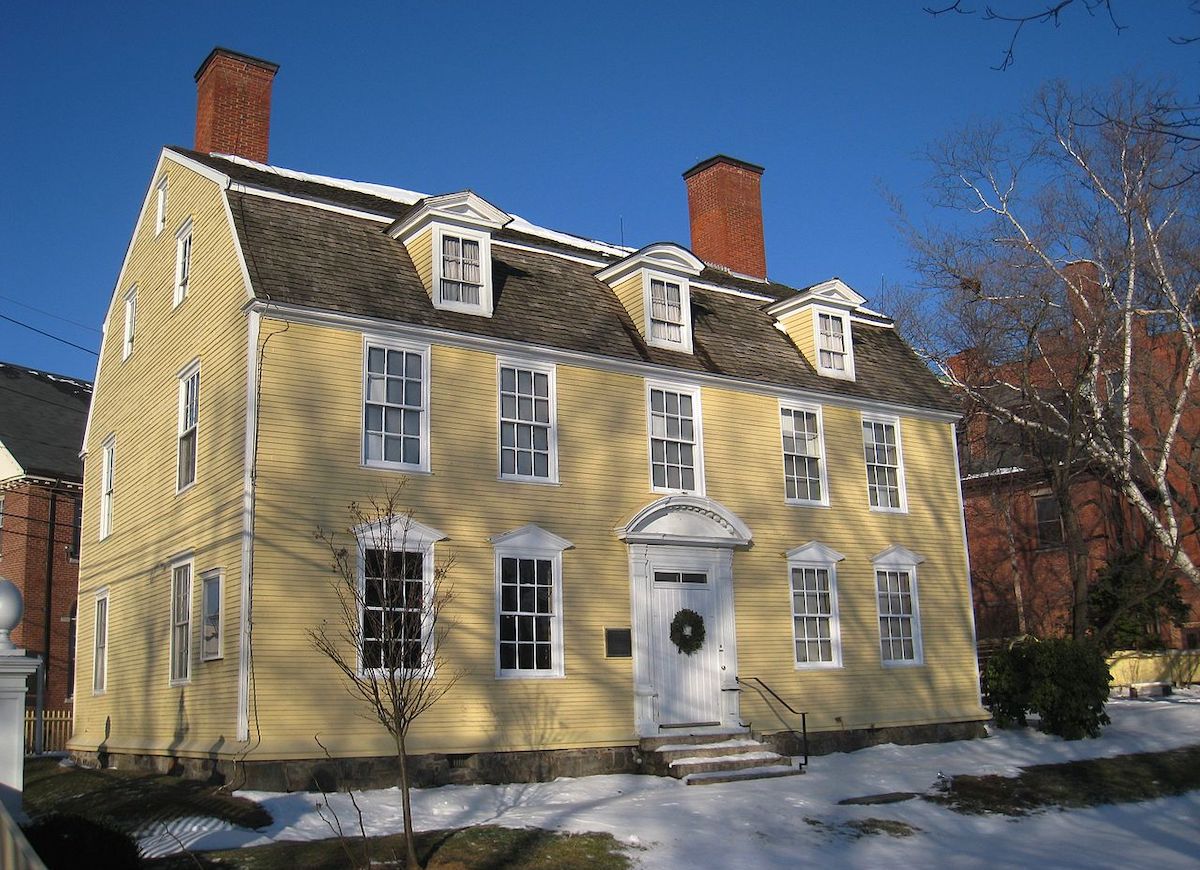
Wikimedia Commons via Daderot
This famous Georgian-style home may bear the name of John Paul Jones, but the Revolutionary War naval commander only rented a room in the house from 1781 to 1782. In fact, the house was built by master housewright, Hopestill Cheswell, in 1758 for Captain Gregory Purcell, whose wife took in boarders after his death. Now owned by the Portsmouth Historical Society, the house is open to the public to tour the nine bedrooms, parlor, large dining room, kitchen, and office, all decorated to reflect early 19th-century tastes.
New Jersey – Drumthwacket
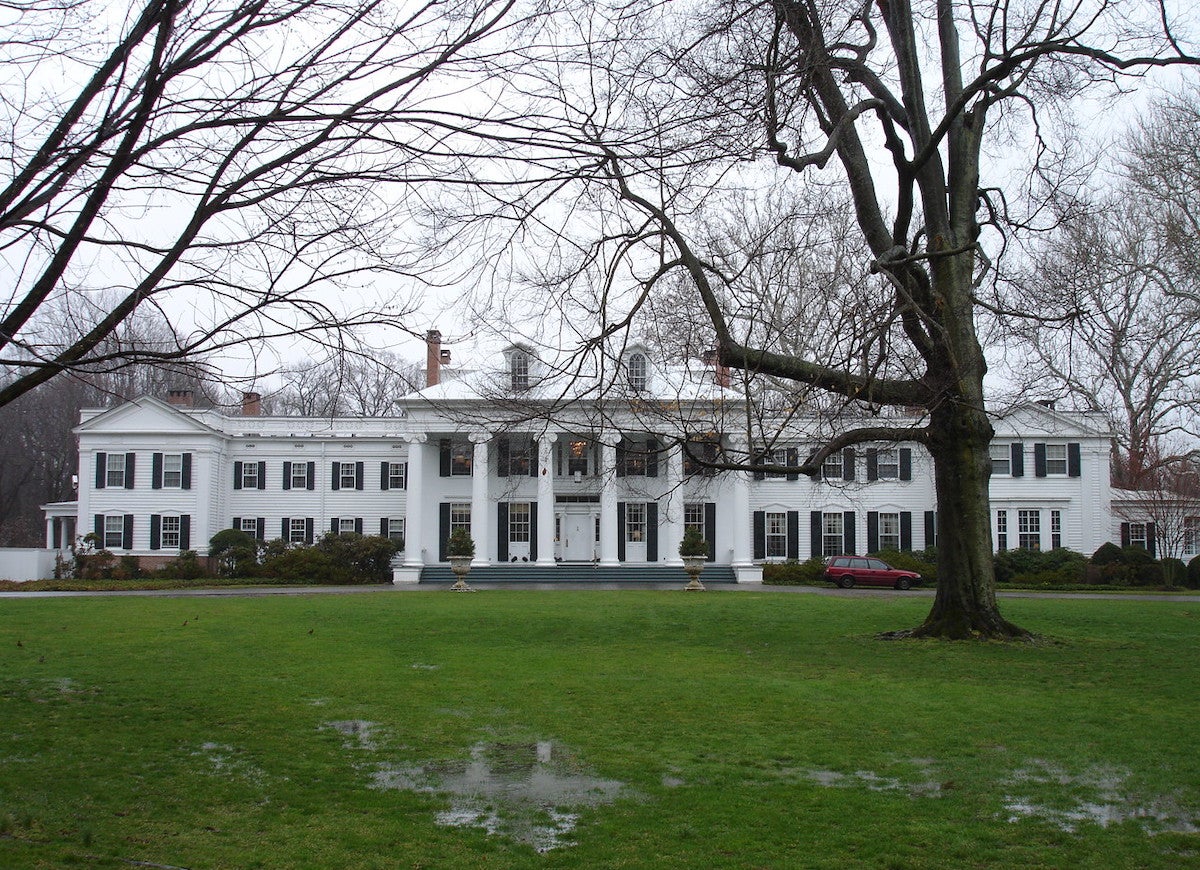
Wikimedia Commons via KForce
Purchased by the state of New Jersey in 1966, Drumthwacket (Gaelic for “wooded hill”) has served as the governor’s mansion ever since. Strange coincidence, too, as the residence was built in 1835 by Charles Smith Olden, who would himself become the 19th governor of New Jersey. In between those years, the Greek Revival-style mansion had been reinvented several times, including as an impressive estate (complete with aviary, bowling green, and even a monkey house) and as an official residence for the engineering staff of the International Playtex Corporation, who developed several patents in the music room.
New Mexico – De Vargas Street House
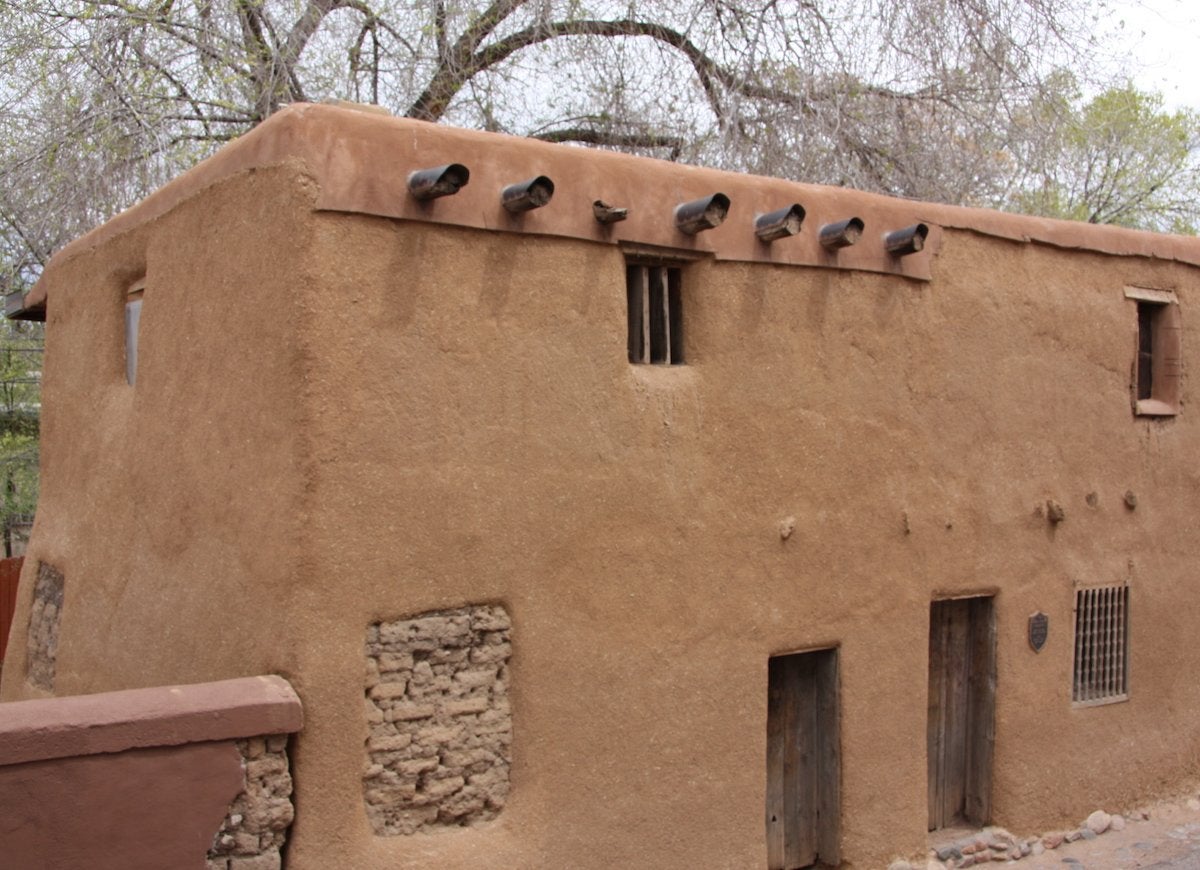
Although you might not think it’s much to look at, the two-room adobe house is thought to be the oldest home in Santa Fe, and one of the oldest homes in the United States. While no one’s entirely certain exactly when the house was built, tree-ring cuttings from the ceilings suggest a construction date during the mid-1700s, and the foundation on which the house rests resembles Pueblo architecture and may pre-date Spanish colonization. Once home to the Brothers of the Christian Schools, the adobe house now operates as a museum, offering visitors a peek into old Santa Fe.
New York – Oheka Castle
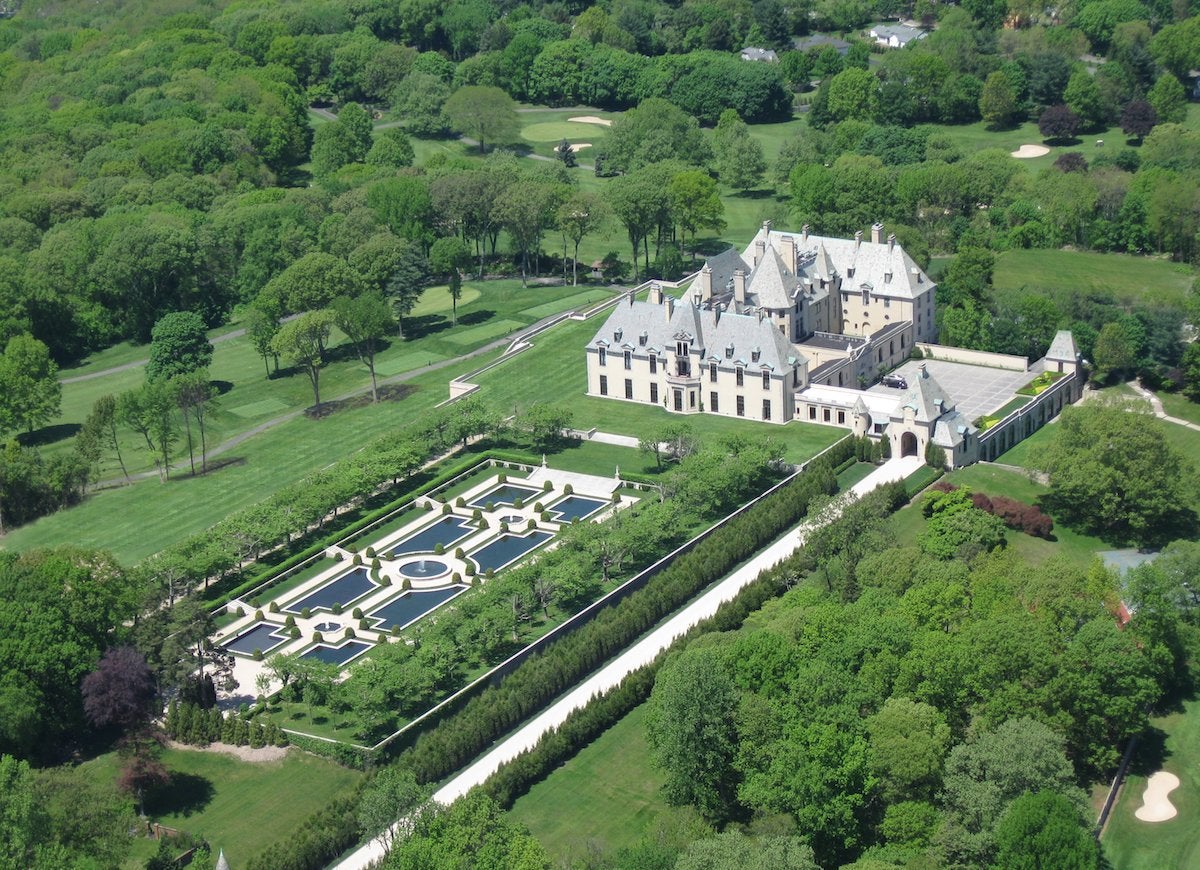
Completed in 1919, Oheka Castle is the second-largest private home in the United States, with 127 rooms spanning more than 109,000 square feet. Perhaps more impressive than the residence itself are the many diversions offered on the estate, including an 18-hole golf course, tennis courts, indoor swimming pool, manicured gardens, one of the largest greenhouses in the United States, and a landing strip, to name a few. Curious sightseers need not wait for an invitation; the home is open for daily tours and is available for rentals, if you’ve got the cash.
North Carolina – Biltmore Estate
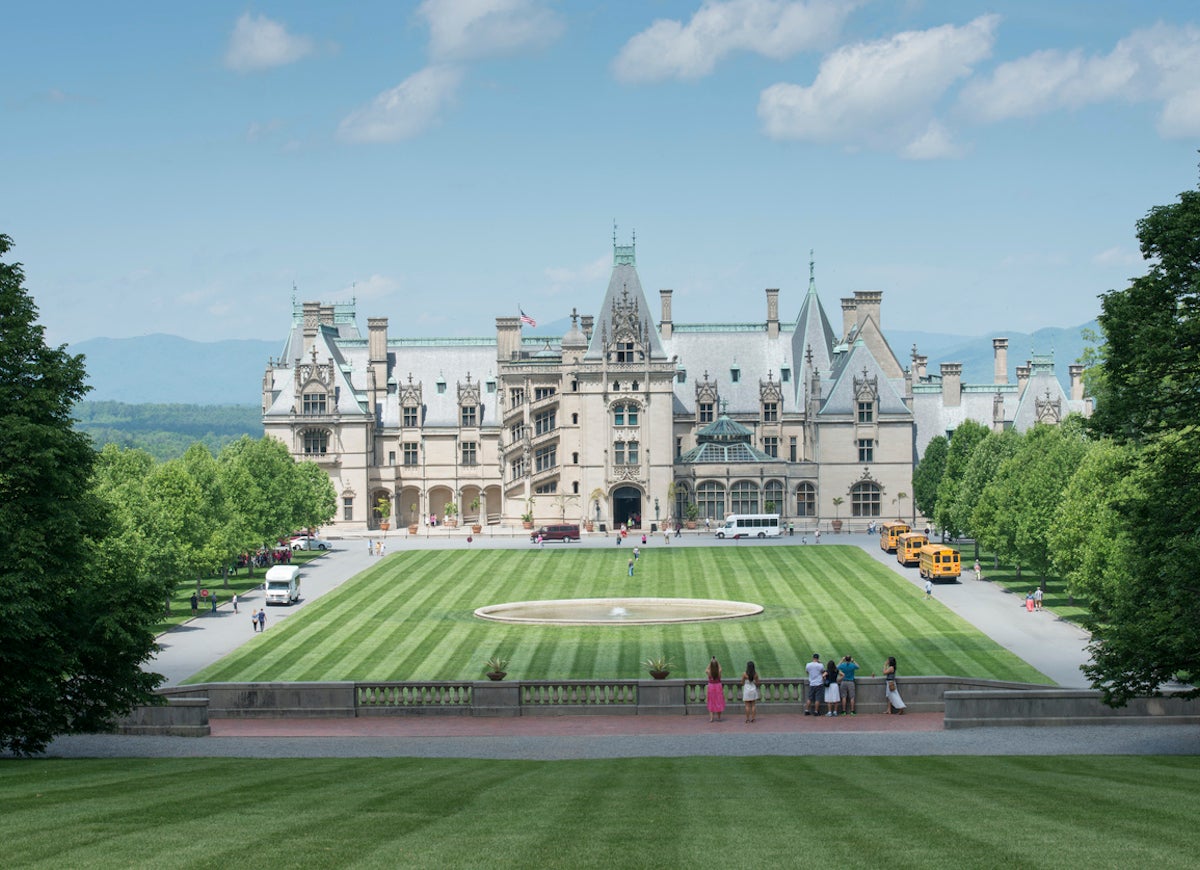
No American home has come close to rivaling the size and splendor of the Biltmore Estate, which was completed in 1895 and is still owned by descendants of George Vanderbilt. Encompassing 178,926 square feet and surrounded by 125,000 acres of park-like grounds, the home is filled with antique and modern treasures, including works of art by Renoir, 16th century tapestries, a library containing 10,000 volumes, and historic furnishings. There are three upscale hotels on the estate grounds, and the home itself is open for self-guided tours. If you can’t make it to North Carolina, you can catch glimpses of the Biltmore Estate in many movies, including “Forrest Gump,” “The Last of the Mohicans,” “Hannibal,” and the series “One Tree Hill.”
North Dakota – Chateau de Mores
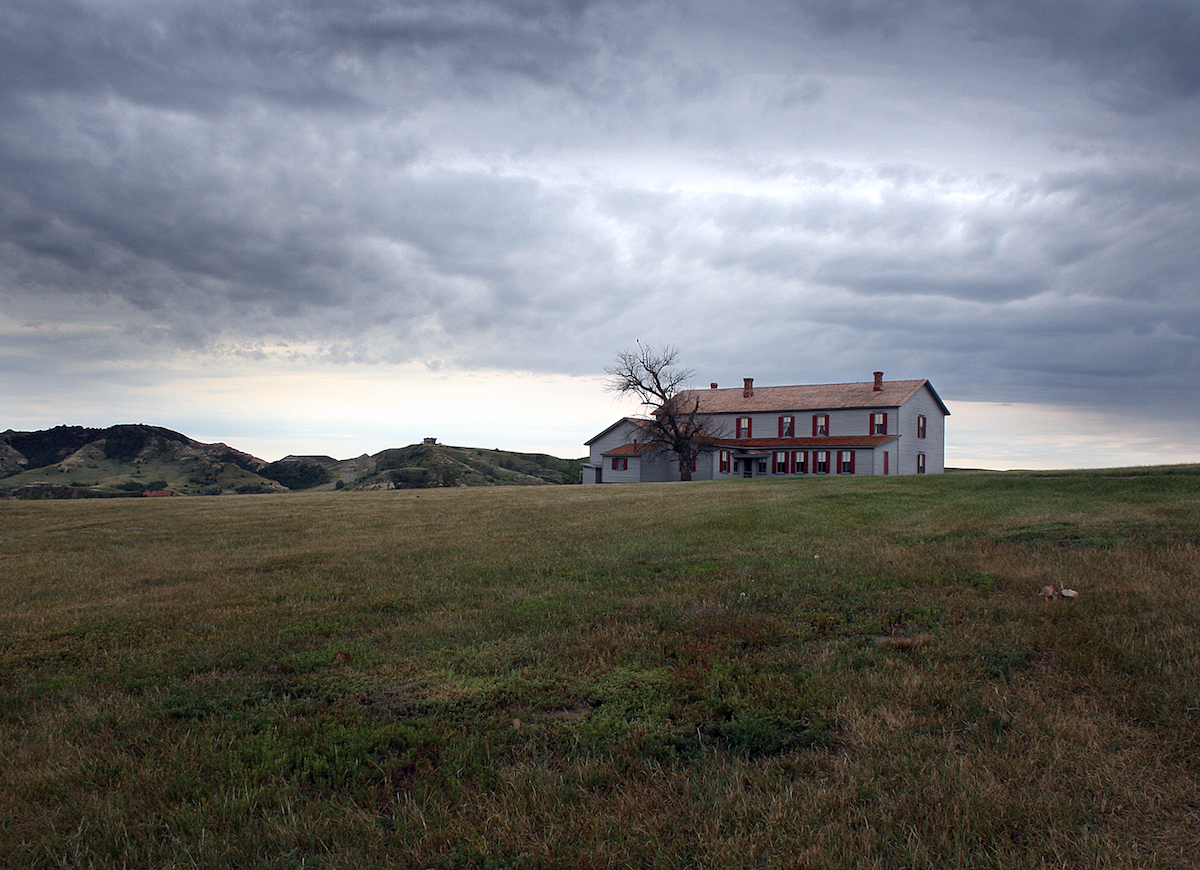
While not nearly as opulent as some of the other homes on the list, the Chateau de Mores, built in 1883, was certainly larger and more luxurious than most prairie homes of its day. Built as a summer home and hunting lodge by the French Marquis de Mores, who hoped to strike it rich in America, it was occupied intermittently until his eventual financial ruin and return to France. Rescued from neglect and disrepair, the 26-room home was restored during the early 1900s and is now open to the public as a museum.
Ohio – "A Christmas Story" House
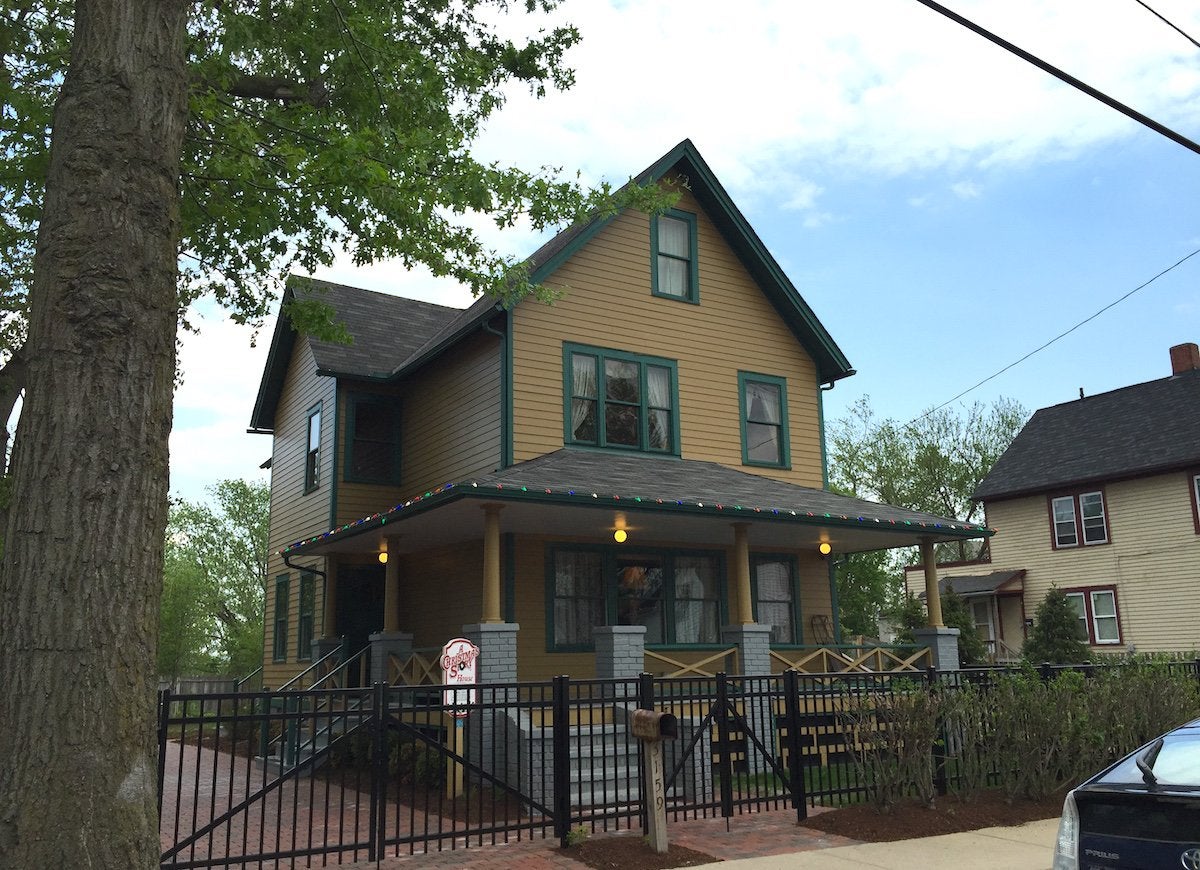
If you love the classic Christmas flick, then you’ll appreciate the “A Christmas Story” House, which served as the exterior of Ralphie Parker’s family’s home in the film. Although the movie was set in “Hohman,” Indiana, the majority of exterior filming took place in and around Cleveland, Ohio, with most interior scenes shot on a sound stage. Entrepreneur and movie fan Brian Jones purchased the house for $150,000 in 2004 and painstakingly transformed the home’s interior into a replica of the movie set, complete, of course, with a leg lamp. Today, the house is open for daily tours; you can even spend the night. Just be sure not to shoot your eye out!
Oklahoma – E. W. Marland Mansion
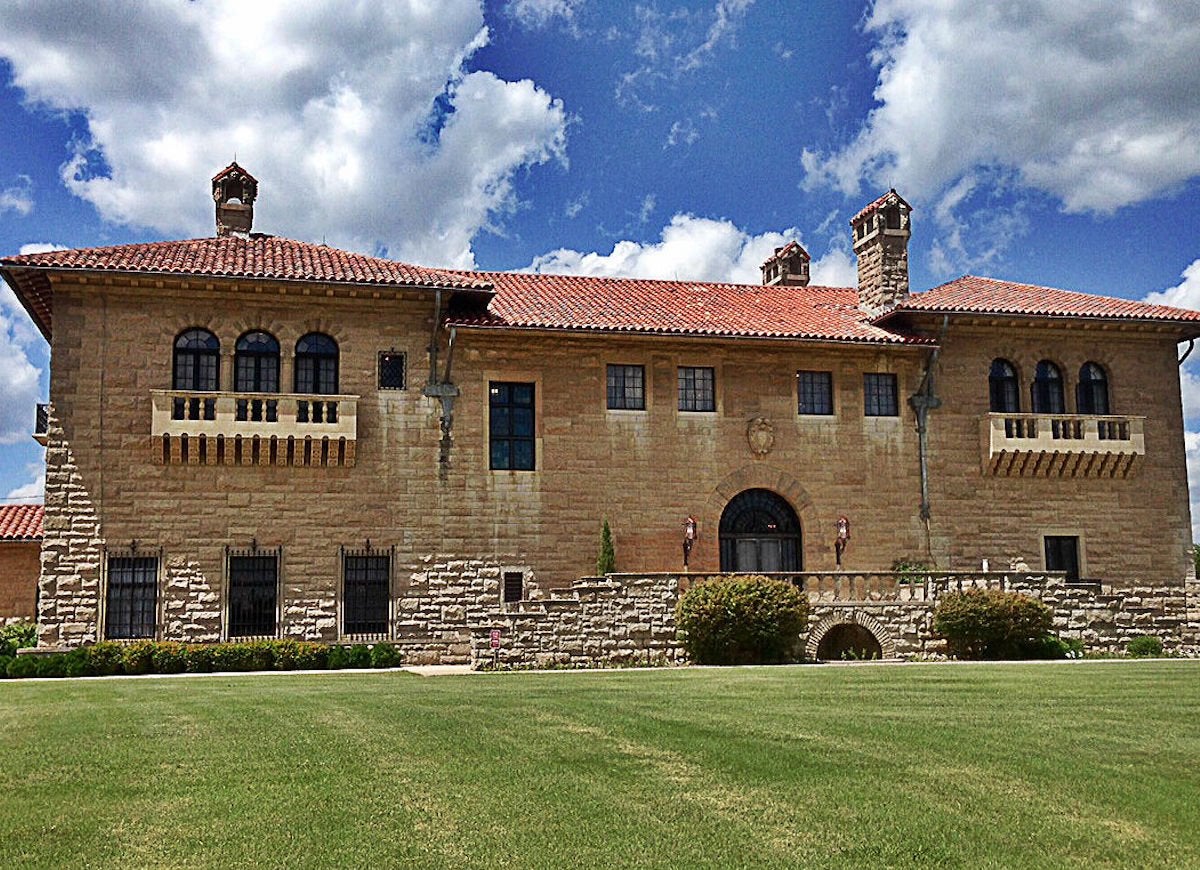
Dubbed the “Palace on the Prairie,” the Marland Mansion was built in the 1920s by oil baron and 10th governor of Oklahoma, Ernest Whitworth Marland. In keeping with the imposing exterior, the home is rich and opulent inside, filled with artwork, gilded and painted ceilings, elaborate woodwork, wrought iron, and statuary. Despite his love of the mansion, Marland lived there for only a few years, as his financial situation soured and the home became a burden to maintain. Operated by Ponca City as a museum since the 1970s, the house is slowly being restored to its former glory.
Oregon – Pittock Mansion
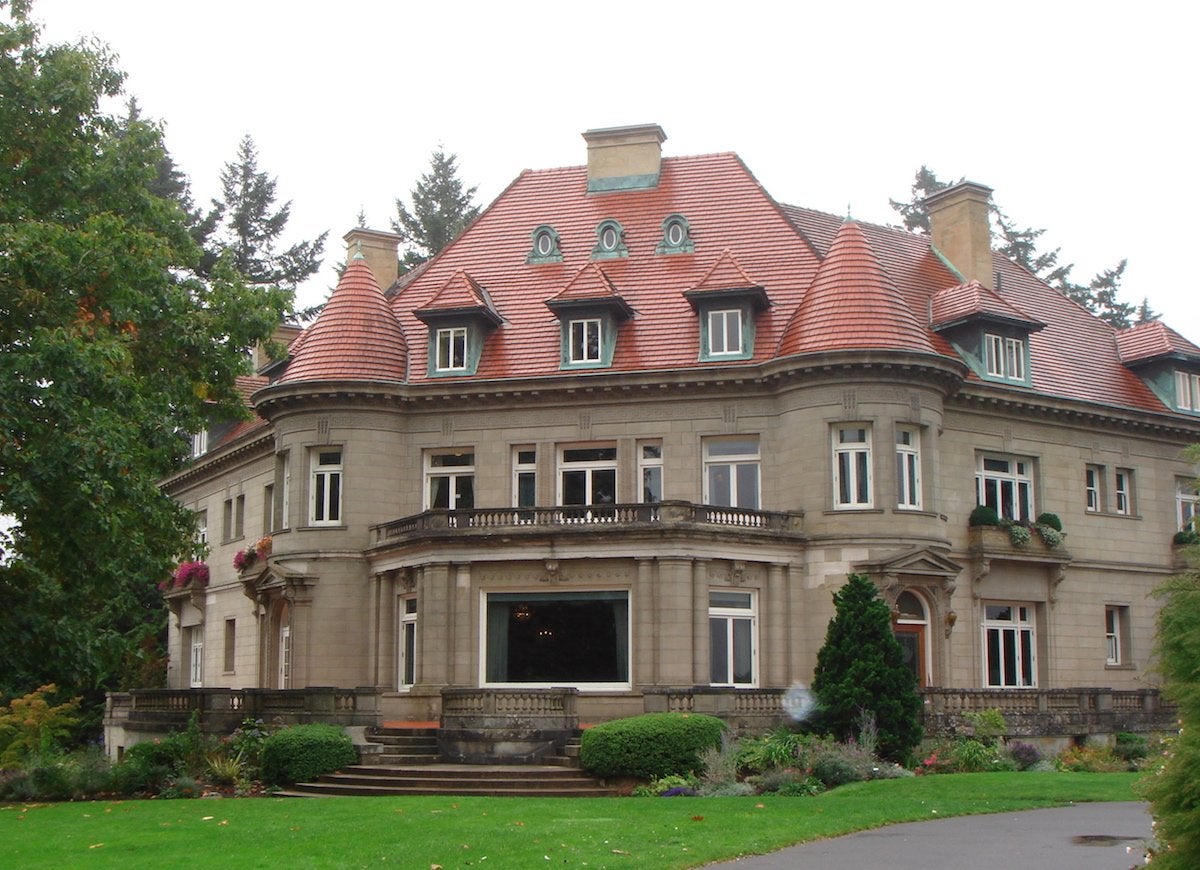
Built at the turn of the last century, the French Renaissance-style Pittock Mansion is a 46-room home equipped with many features that were, at the time, pretty high-tech, including a central vacuum, an elevator, intercoms, and a walk-in refrigerator. The family moved out in 1958, and after the 1962 Columbus Day Storm caused severe damage, the house was slated for demolition. Not content to bid adieu to an iconic part of Portland’s past, residents rallied to save the mansion, resulting in the city of Portland’s decision to purchase the home and preserve it as a historic house museum.
Pennsylvania – Fallingwater
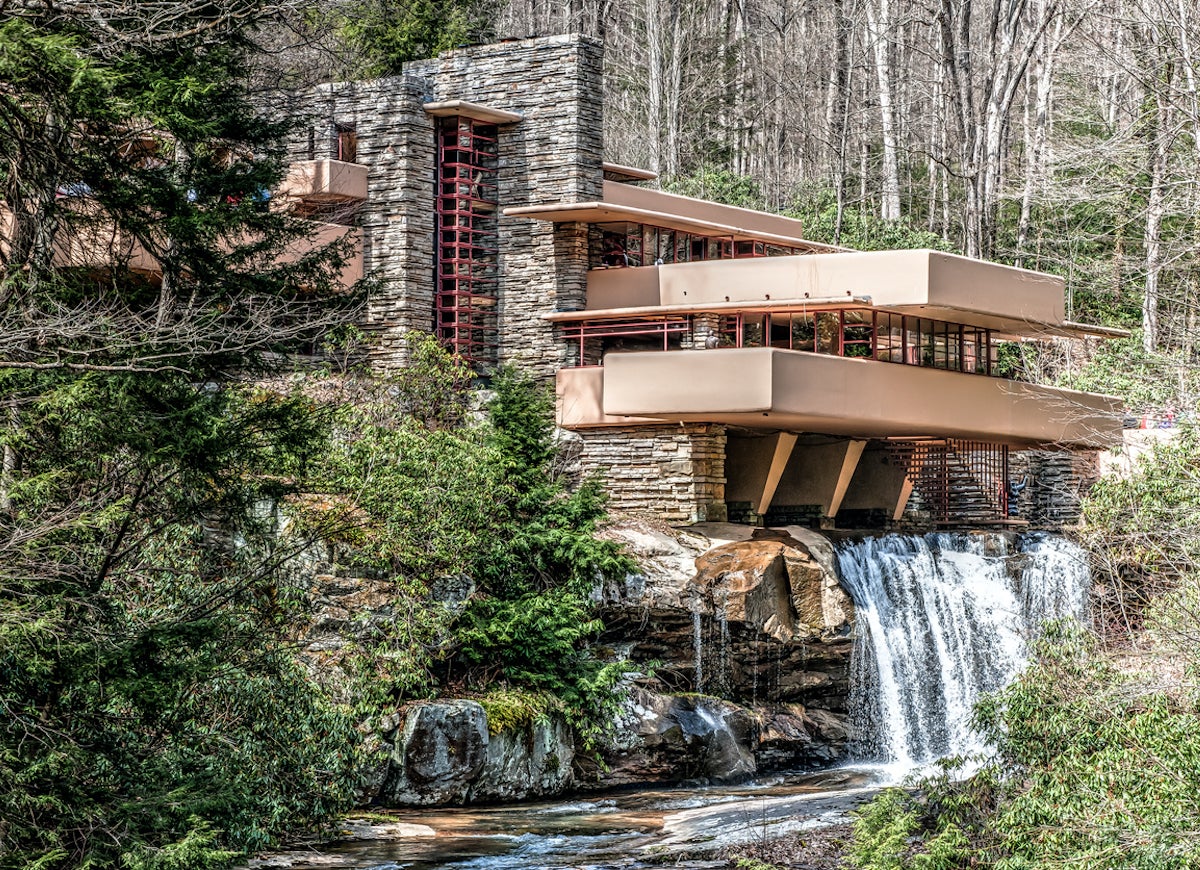
Frank Lloyd Wright designed and built Fallingwater, located in Mill Run, as a weekend retreat for businessman and philanthropist Edgar Kaufmann and his wife. Considered one of Wright’s greatest masterpieces, the house straddles a waterfall and incorporates many other natural elements, including a fireplace hearth built on ledge rock that protrudes through the floor. The Kaufmann family deeded Fallingwater to the Western Pennsylvania Conservancy in 1963, and the home is now open for public tours.
Rhode Island – The Breakers
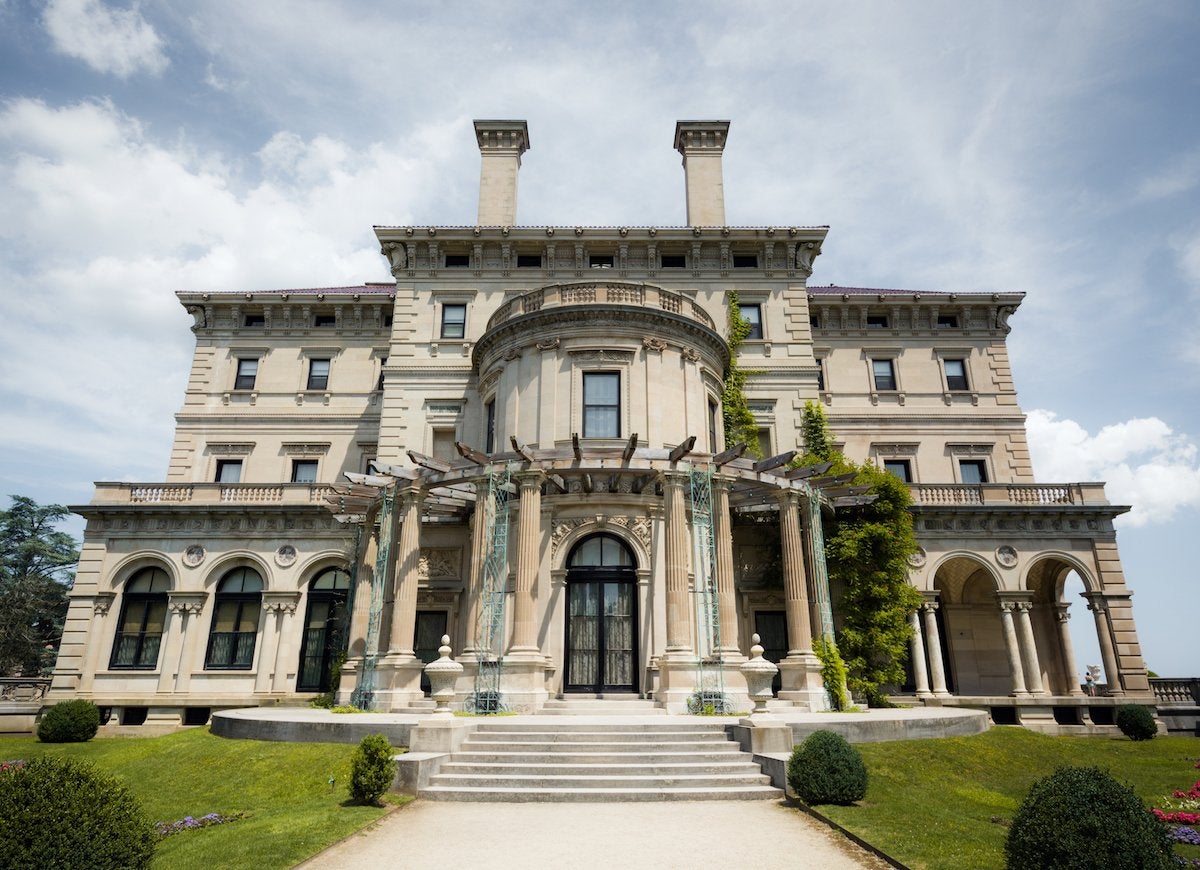
This “summer cottage” was built for Cornelius Vanderbilt II in 1895. Designed in Italian Renaissance style, the 125,339-square-foot, 70-room home is lavishly decorated with mosaics, rare woods, marble, and elaborate architectural flourishes, and it’s filled with spectacular European antiques and artwork. The Vanderbilt family owned the house until the 1970s, when it was sold to the Preservation Society of Newport County and opened to the public.
South Carolina – Drayton Hall
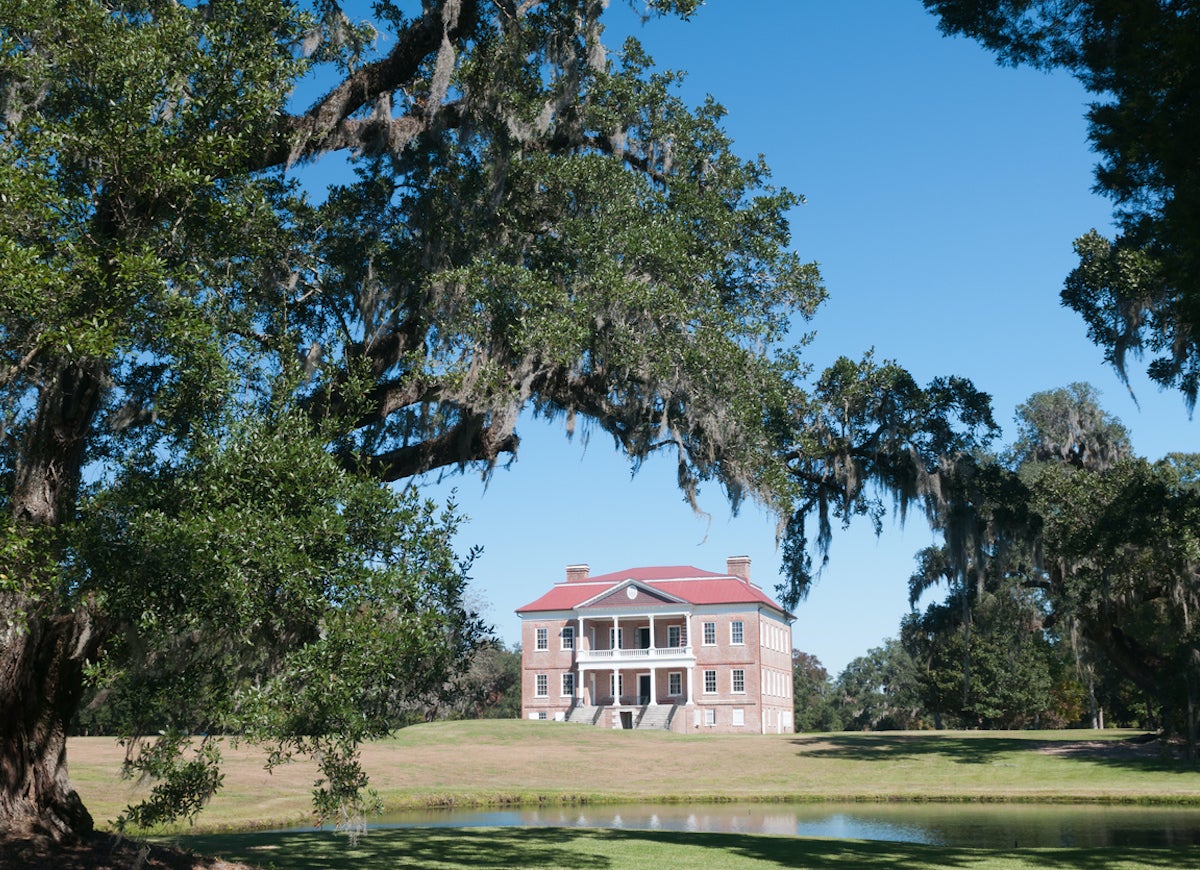
Completed in the mid-1700s, Drayton Hall is the only plantation house along South Carolina’s Ashley River to survive both the Revolutionary and Civil Wars, and is the oldest remaining example of Georgian Palladian style in the United States. The grounds also hold one of the oldest African-American cemeteries in the country, as slave labor contributed to the construction and early maintenance of the house. Although seven generations of Draytons occupied the home, they made few major renovations to the property, so it today hews very close to the original dwelling.
South Dakota – Laura Ingalls Wilder House (Surveyors' House)
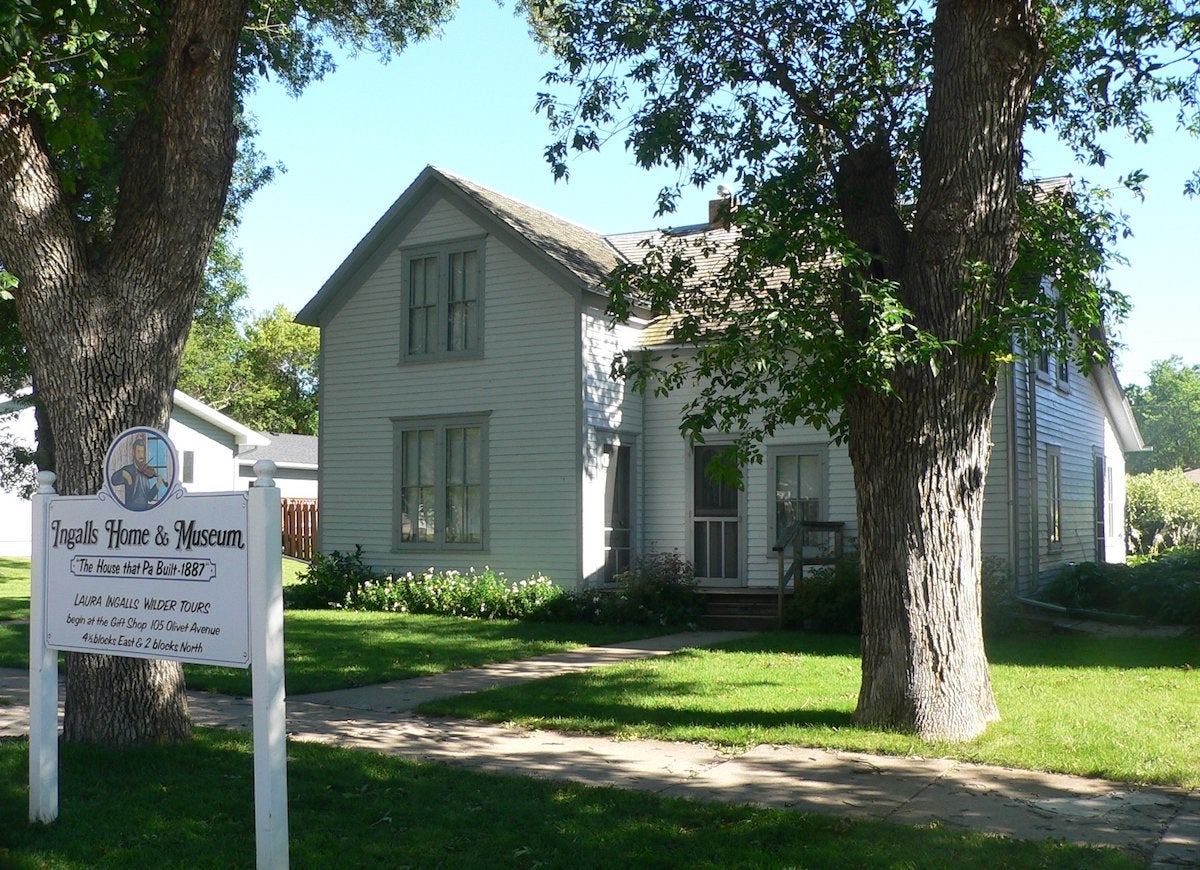
As her books attest, beloved writer Laura Ingalls Wilder moved frequently during her early years. She and her family dwelt in this modest house, described in “By the Shores of Silver Lake,” during the winter of 1879 to 1880 while Pa finished construction of their nearby homestead. The Laura Ingalls Wilder Memorial Society of De Smet now maintains the Surveyors’ House, along with several other nearby sites related to the Wilder family, and has lovingly restored the properties to their charming original appearances.
Tennessee – Graceland
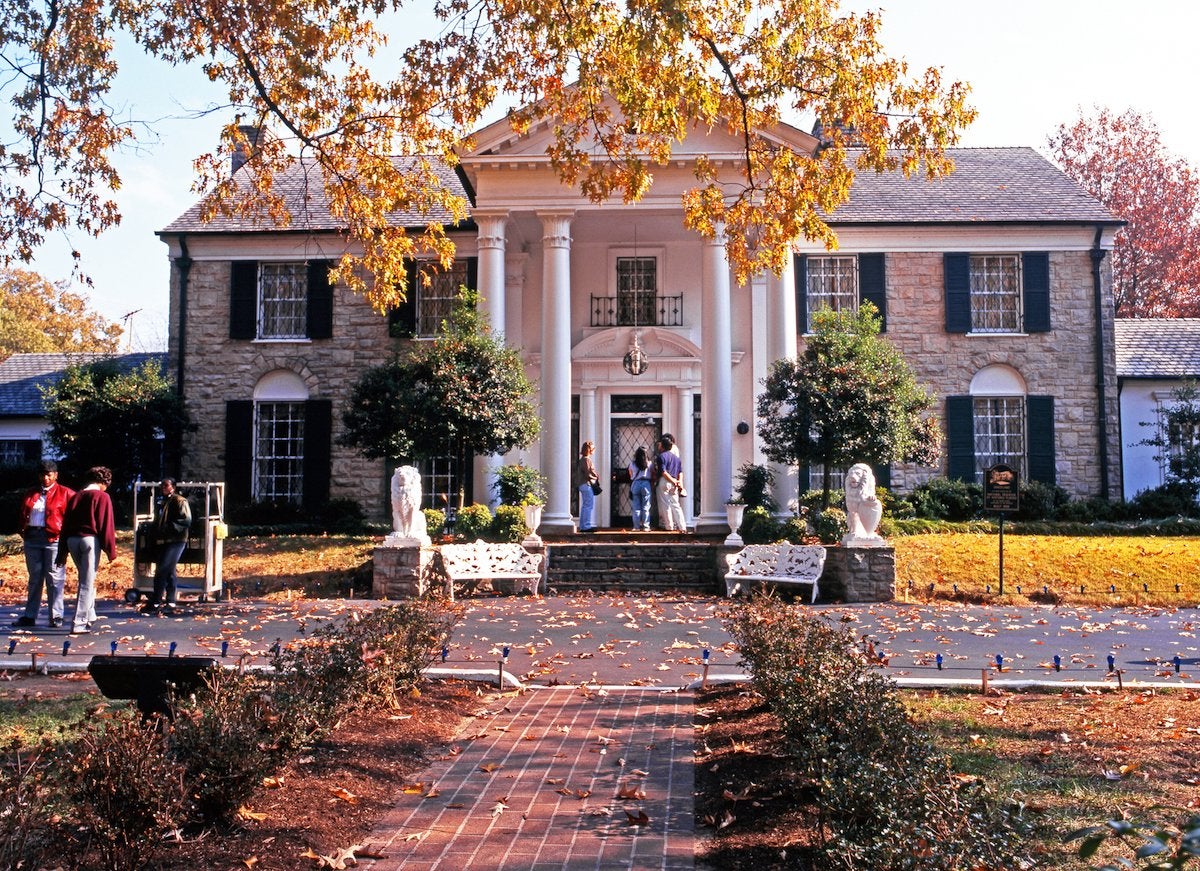
Located in Memphis, Elvis Presley’s former home, Graceland, is the second most visited home in the United States, behind the White House. The 17,552-square-foot Colonial Revival-style mansion has a total of 23 rooms, including eight bathrooms and bedrooms. Presley purchased Graceland in 1957 for $102,500 and called it home until his death in 1977. Today you can visit his grave, which is located on the premises, and tour his wildly decorated home, including a bedroom with an indoor swimming pool and a “jungle room” decorated with shag carpeting and Polynesian furnishings, and explore an extensive collection of Elvis memorabilia, including many of his outfits and guitars.
Texas – Bishop's Palace
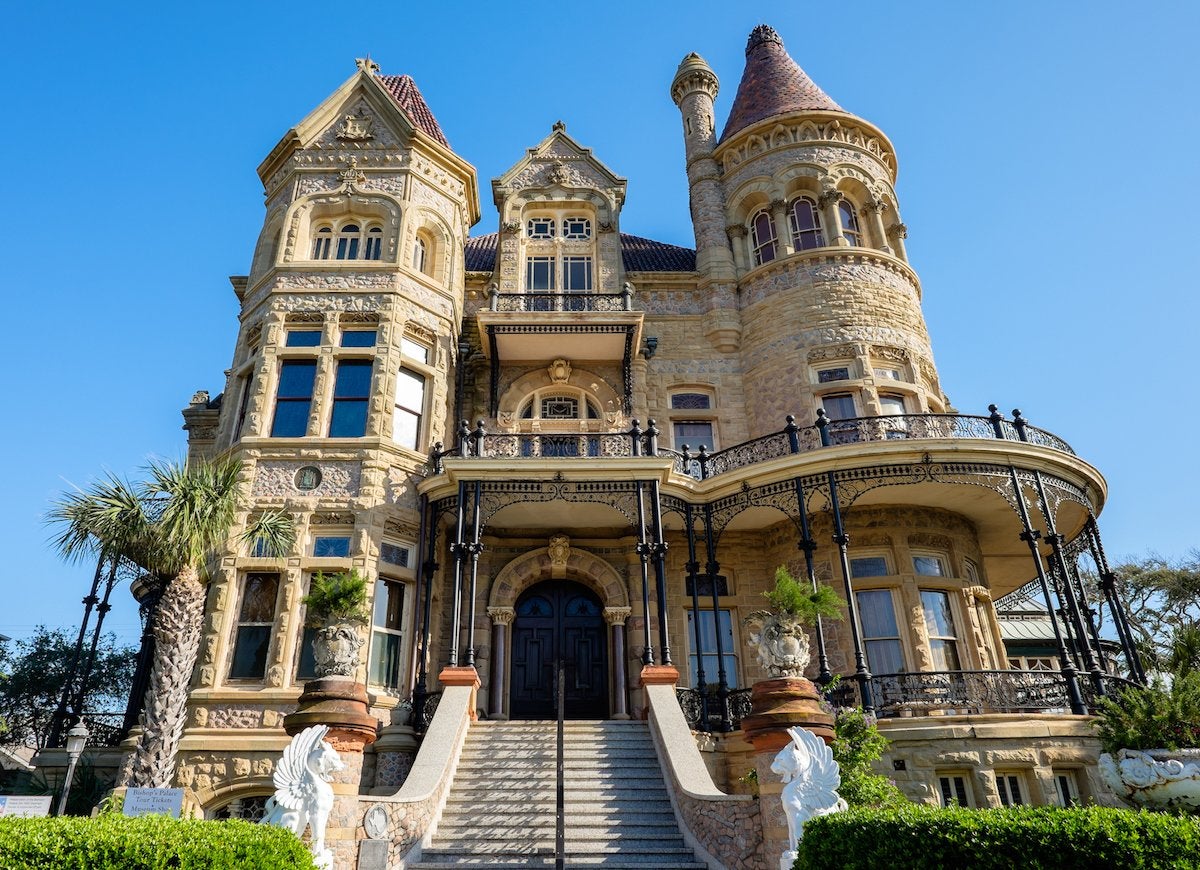
Completed in 1893, the stunning Bishop’s Palace, also called Gresham House, not only survived the Category 4 Galveston Hurricane of 1900, which killed thousands, but it also served as a refuge for survivors after the town was devastated. Today, the interior of the home is beautifully adorned with stained-glass windows, elaborate wooden trim and moldings, and a 40-foot mahogany stairwell. The Galveston Historical Foundation owns the property and offers daily tours.
Utah – The Beehive House
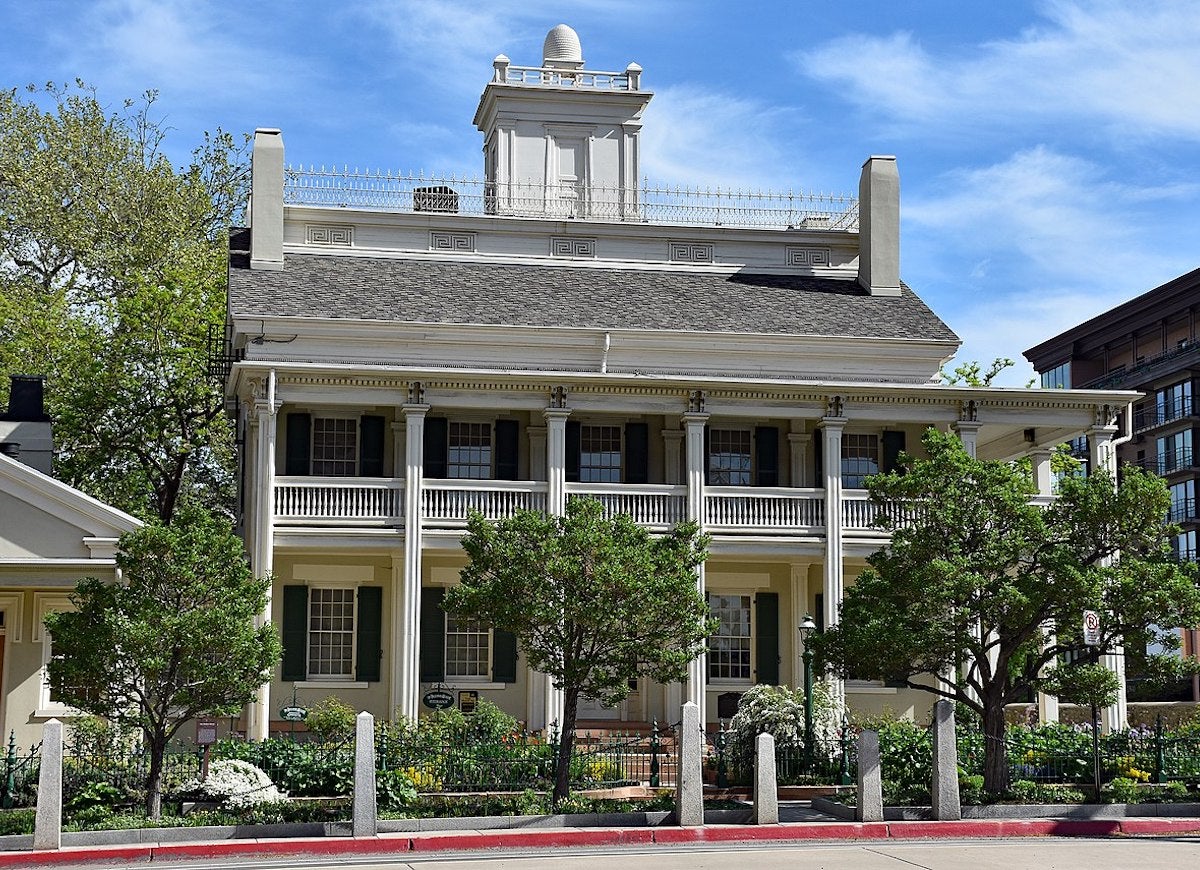
Wikimedia Commons via Beneathtimp
Built for Brigham Young, an early leader of the Church of Jesus Christ of Latter-day Saints, this Salt Lake City house takes its name from the decorative beehive structure atop the roof, which symbolizes community and a strong work ethic. The house served as Young’s executive mansion during his tenure as governor of Utah Territory prior to Utah’s admittance into the United States, and it was also the home of one of his wives and their nine children. In recent years, one of Young’s grandchildren restored the house to its original appearance, and today it is a historic museum filled with period furnishings, most of which are original to the home.
Vermont – George Perkins Marsh Boyhood Home
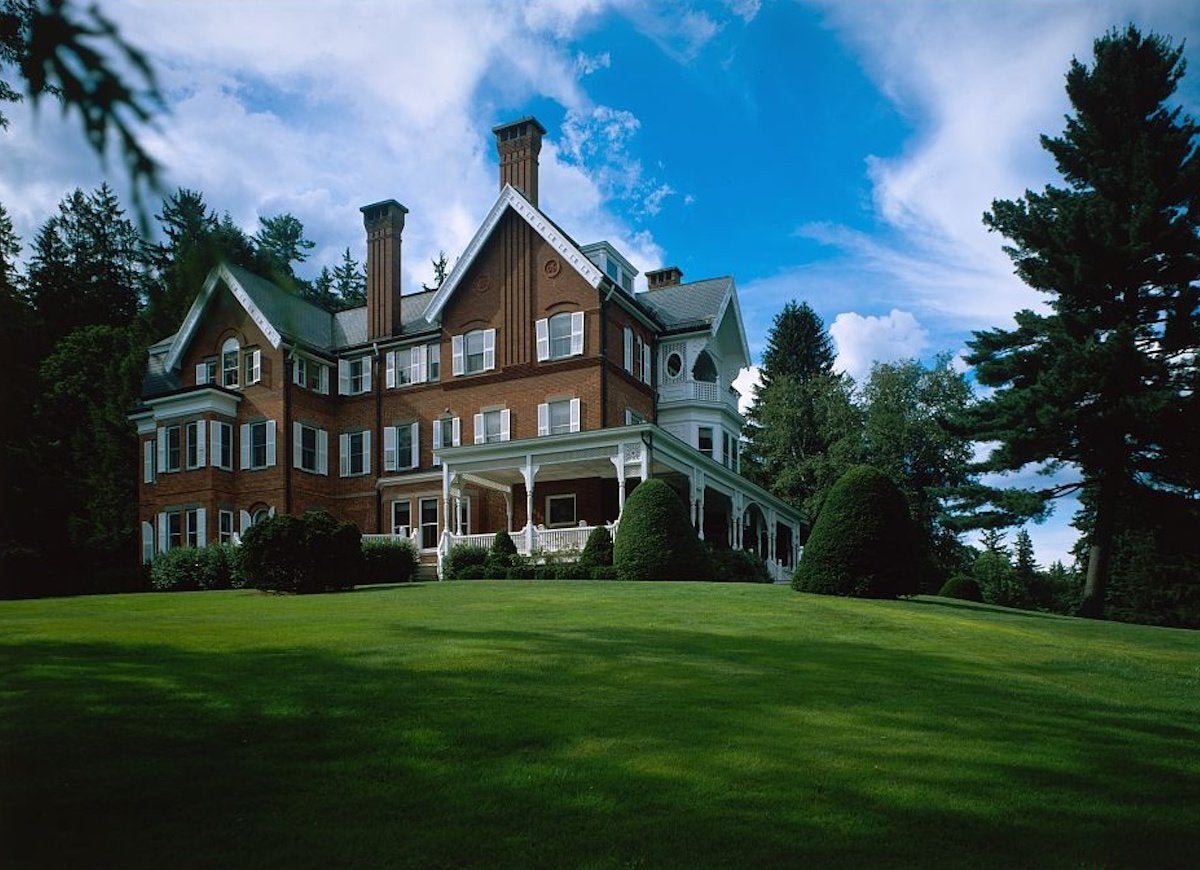
This prime example of Queen Anne architecture, built in 1805, was made famous by one of its youngest occupants, George Perkins Marsh, who would grow up to become a congressman and father of the conservation movement. The house eventually became the property of the Rockefeller family, who donated it to the people of the United States in 1992. Today, the house is the centerpiece of Marsh-Billings-Rockefeller National Historical Park and is open to the public for seasonal tours.
Virginia – Monticello
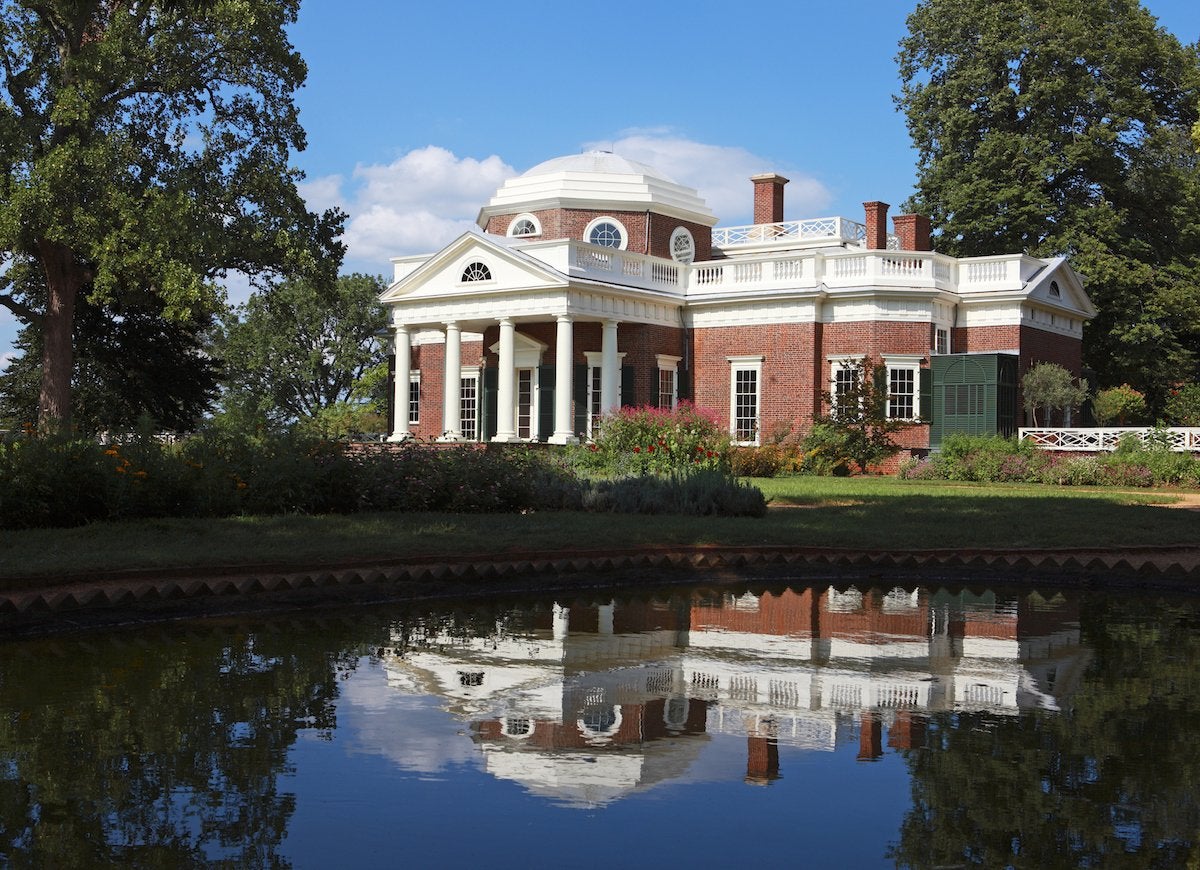
Founding father Thomas Jefferson began planning his famous plantation home when he was only 26 years old. Although heavily influenced by the Italian Renaissance style, he also added many of his own ideas to Monticello’s design. Jefferson continued to remodel and rebuild Monticello for the rest of his life, but the stately home fell into disrepair before his death in 1826. Uriah Levy, a Navy commodore who greatly admired Jefferson, bought Monticello in 1834 and began the work of reconstructing the home, a task that now falls to the Thomas Jefferson Foundation, which owns the historic property. Also on the site is Mulberry Row where generations of enslaved families lived at Monticello, some of which has been designated as archeological sites.
Washington – Manresa Castle
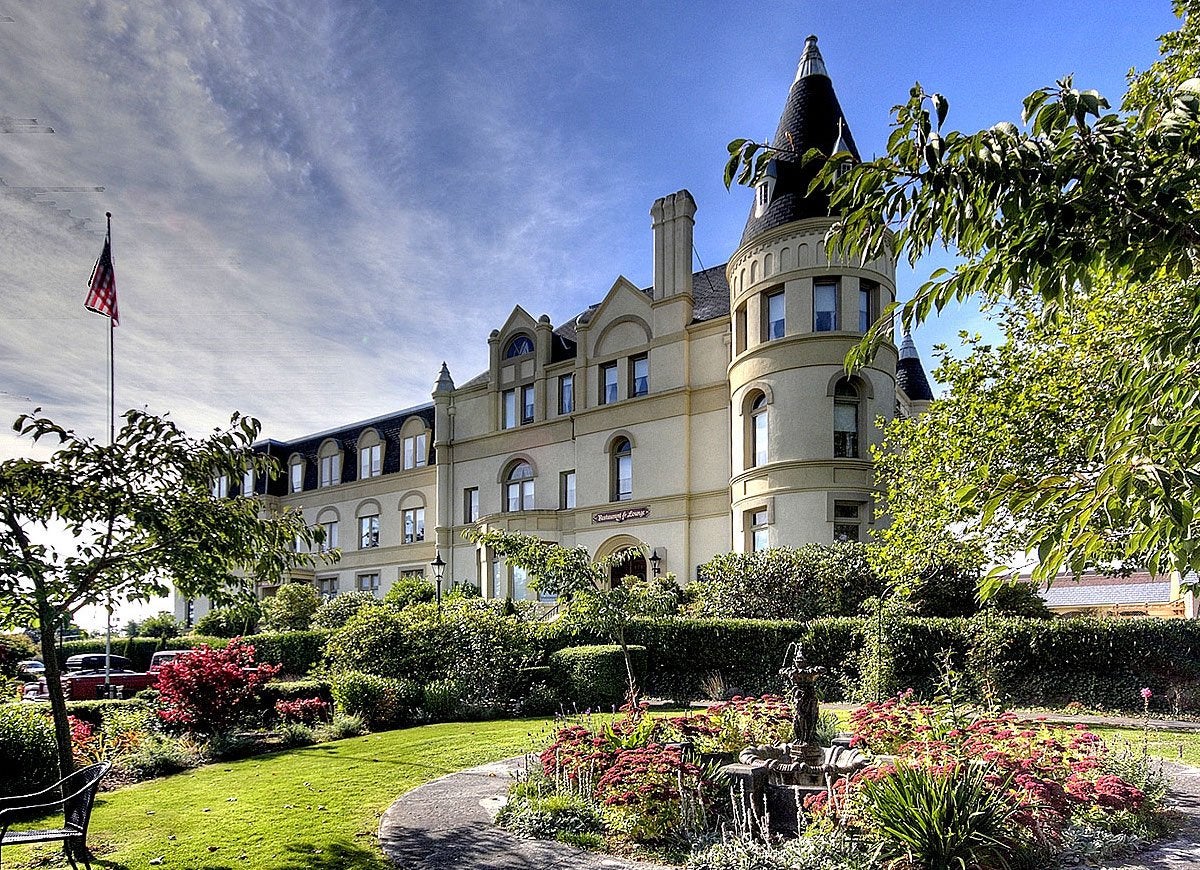
Charles Eisenbeis, a prominent businessman and the first mayor of Port Townsend, drew inspiration from castles in his native Prussia when building his 30-room home, dubbed Eisenbeis Castle. After his death, the house stood empty for nearly 20 years before an order of Jesuit priests bought the castle, transforming it into a college they named Manresa Hall. Today, Manresa Castle, as it is now called, has been lovingly restored to its Victorian elegance and operates as a historic hotel.
West Virginia – Blennerhassett Mansion
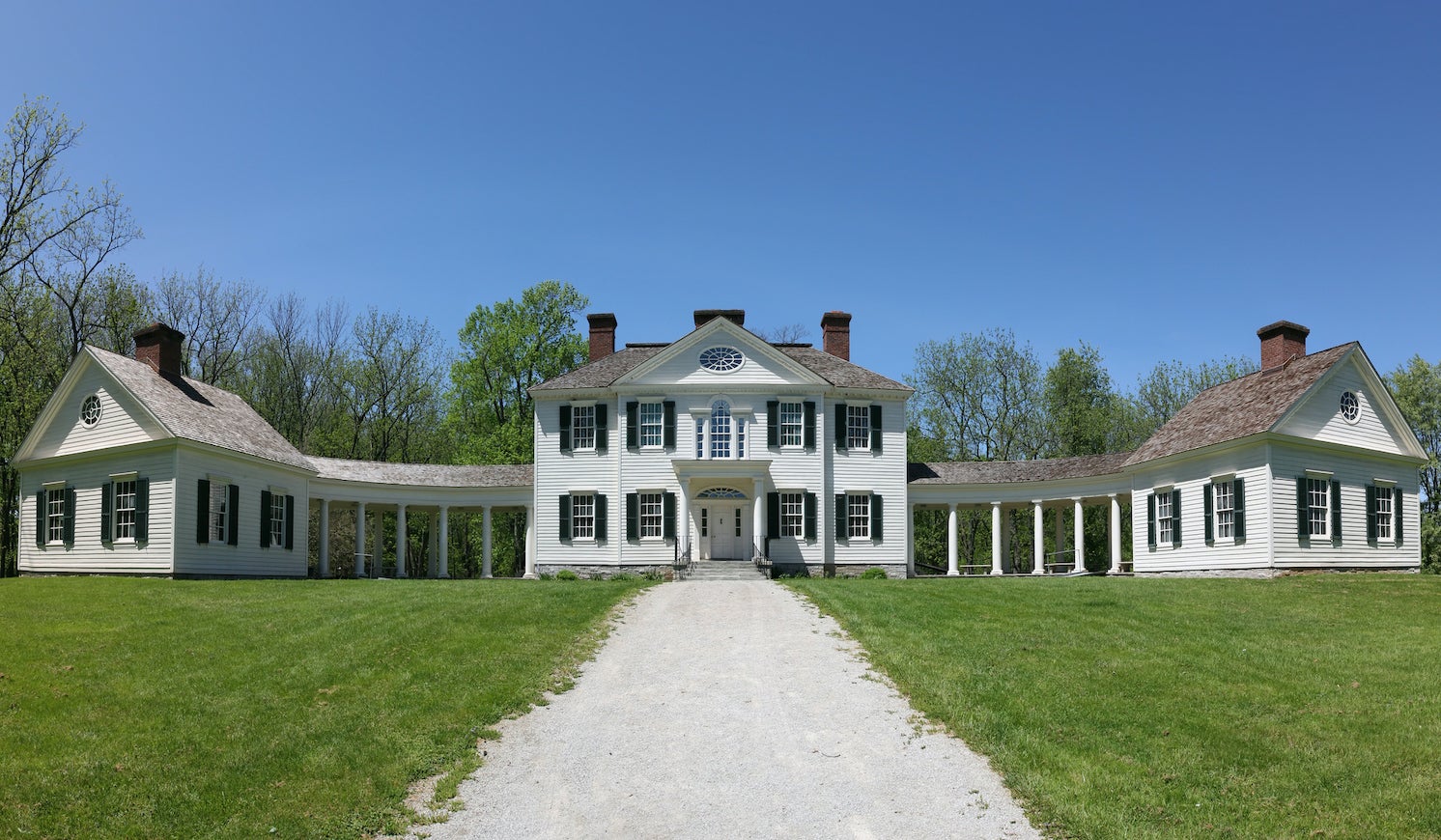
This Palladian-style home, located in Parkersburg, was at one point considered one of the largest and most beautiful homes in the country. Owned by Harman Blennerhassett, it was plundered by West Virginia militia and later burned to the ground when he got caught up in Aaron Burr’s foiled plans to conquer the American West. The state of West Virginia reconstructed the mansion in the 1980s, and today the estate is the Blennerhassett Island Historical State Park.
Wisconsin – Pabst Mansion
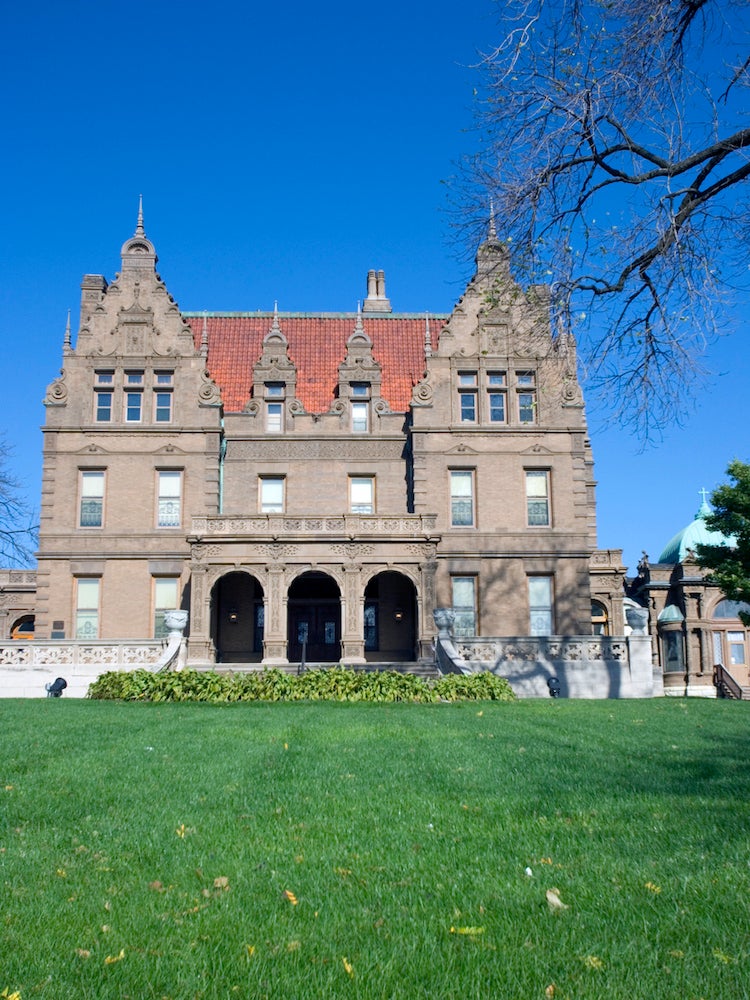
Built in 1892 by Captain Frederick Pabst, the founder of the brewery that bears his name, the Flemish Renaissance Revival-style home was once a showplace for artistic masterpieces and ornate furnishings. The Archdiocese of Milwaukee bought the home in 1908, and it remained church property for nearly 70 years while slowly falling into disrepair. After the structure was slated for demolition, a historic preservation group scooped up the property and lovingly restored it to its former glory.
Wyoming – Trail End (John B. Kendrick Mansion)
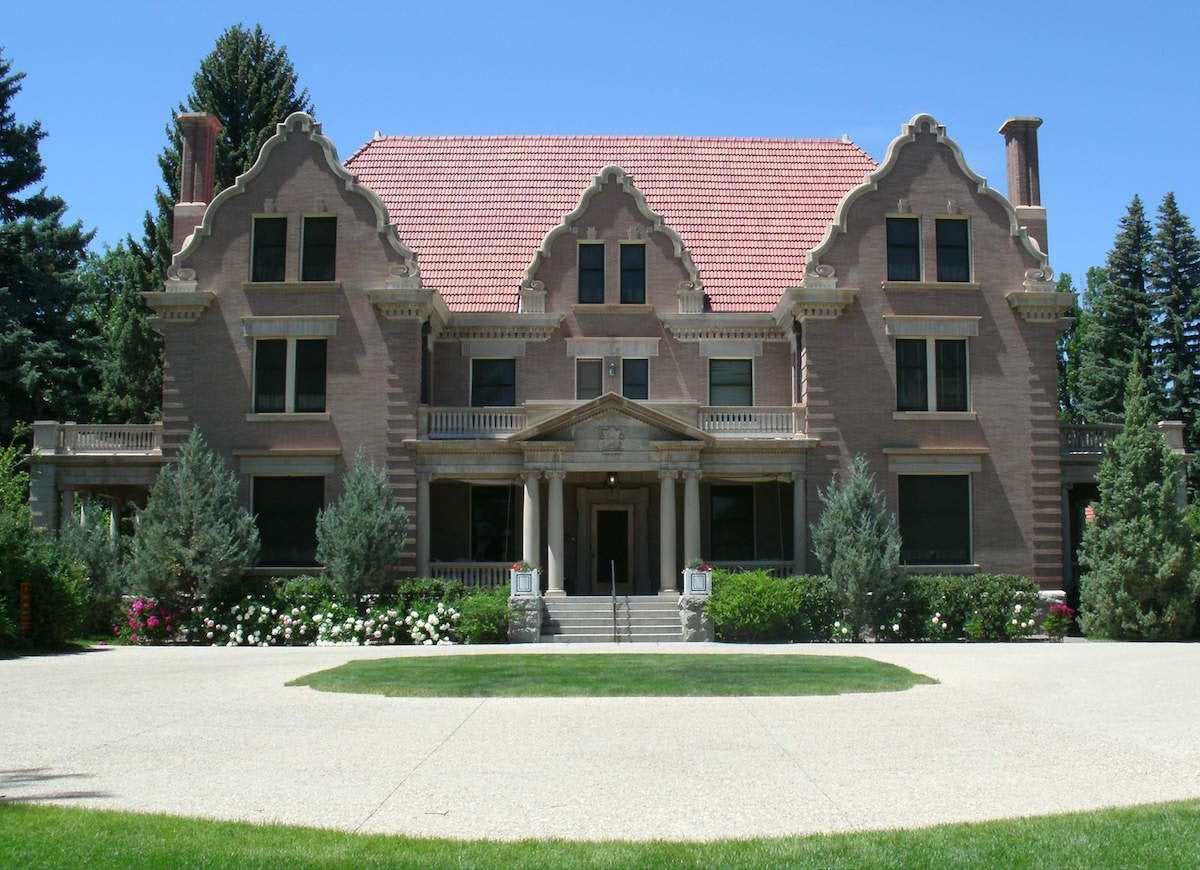
Trail End was the impressive home of John Kendrick, the ninth governor of Wyoming and senator from 1917 until his death in 1933. Although it eventually fell into disrepair and was scheduled to be torn down, it was saved at the last minute by the Sheridan County Historical Society, which decided to purchase the mansion, restore it, and turn it into a local museum displaying art, local memorabilia, and archaeological discoveries from the area. The society struggled to maintain the estate, however, and in 1982 it was turned over to the state. Today, the museum-style exhibits are gone, and the house is being restored to its historic appearance.

The Homeowner Survival Kit
This year’s Bob Vila Approved is a hand-picked curation of tested, vetted, must-have essentials for surviving homeownership today.